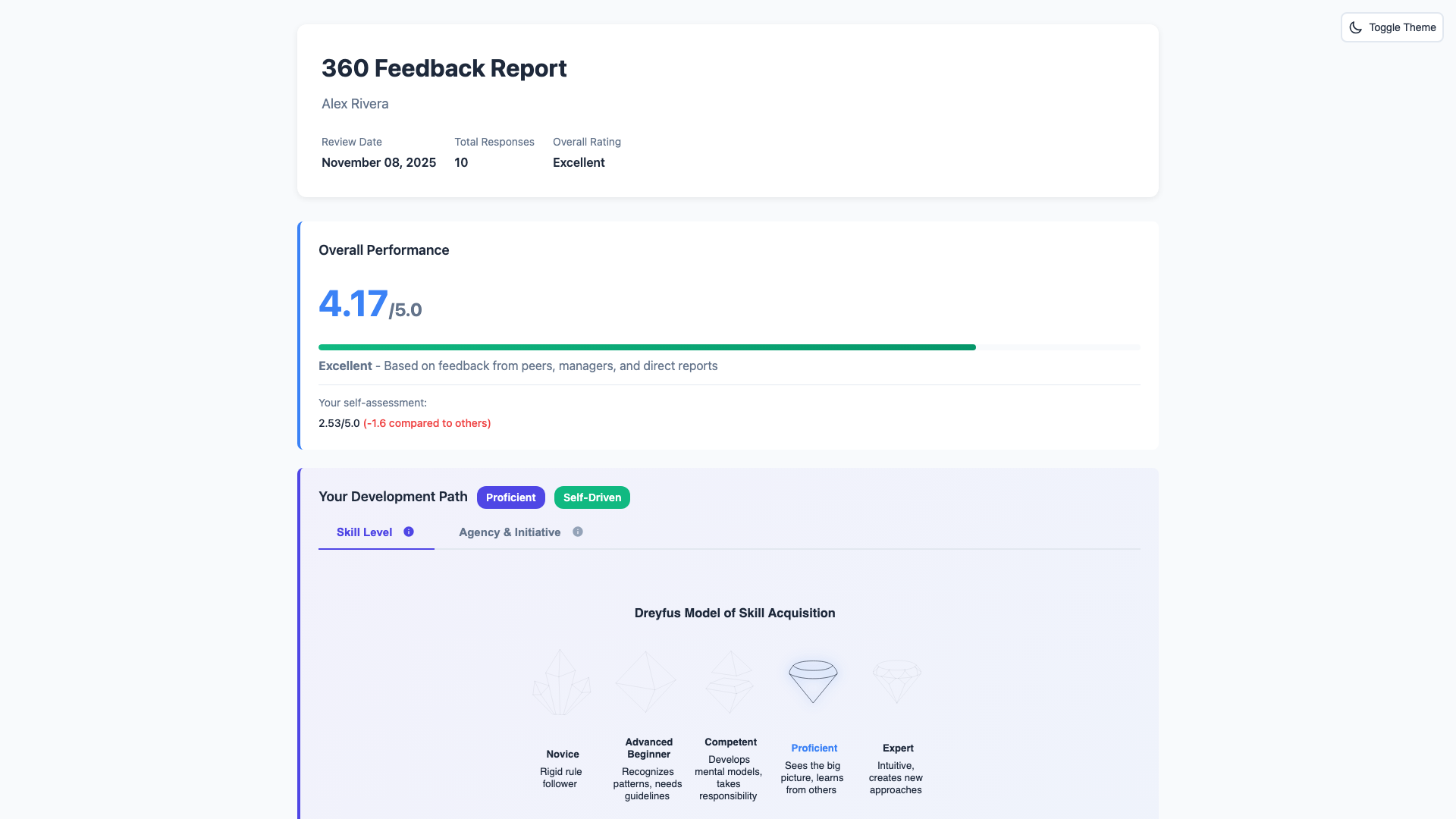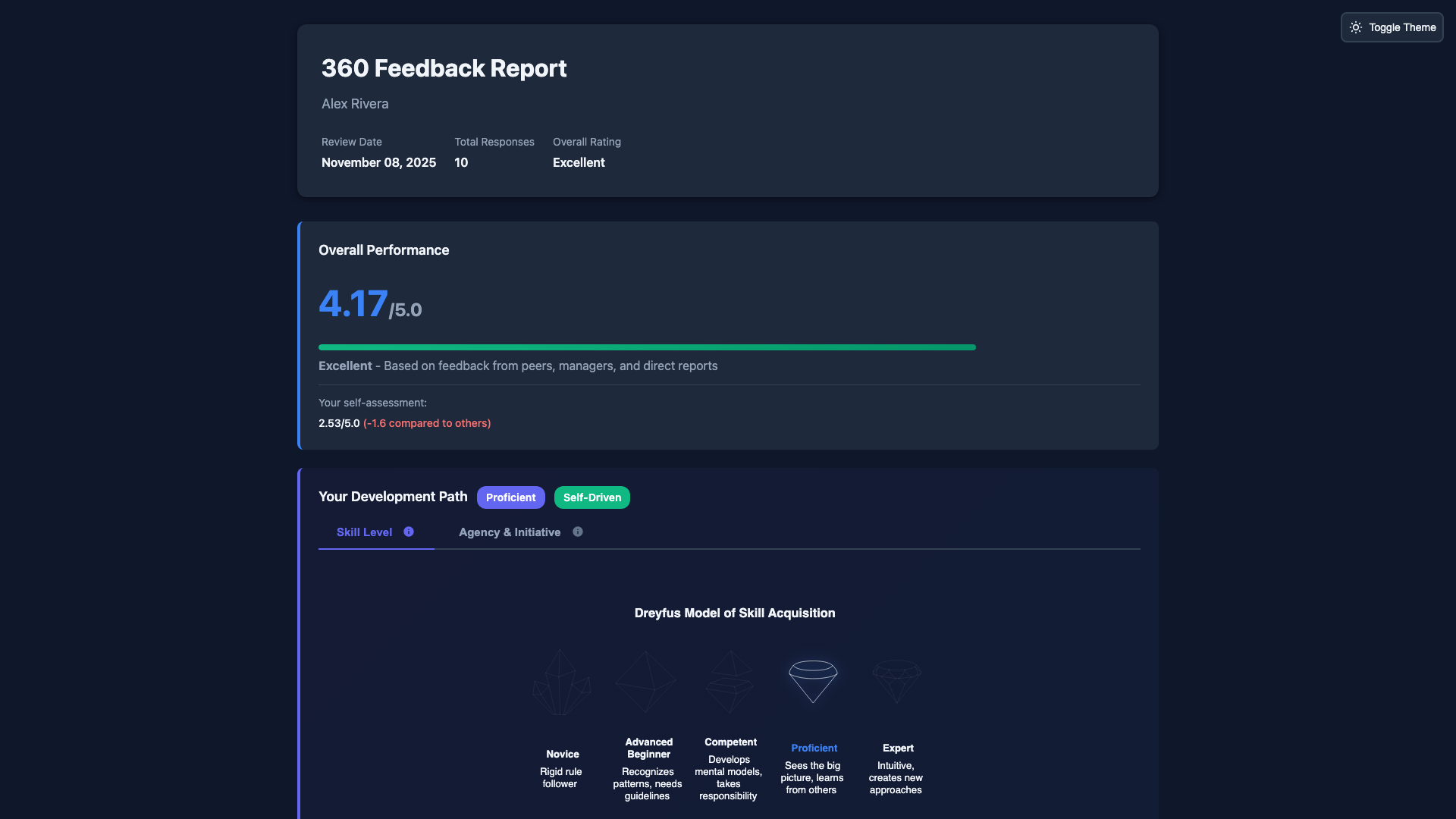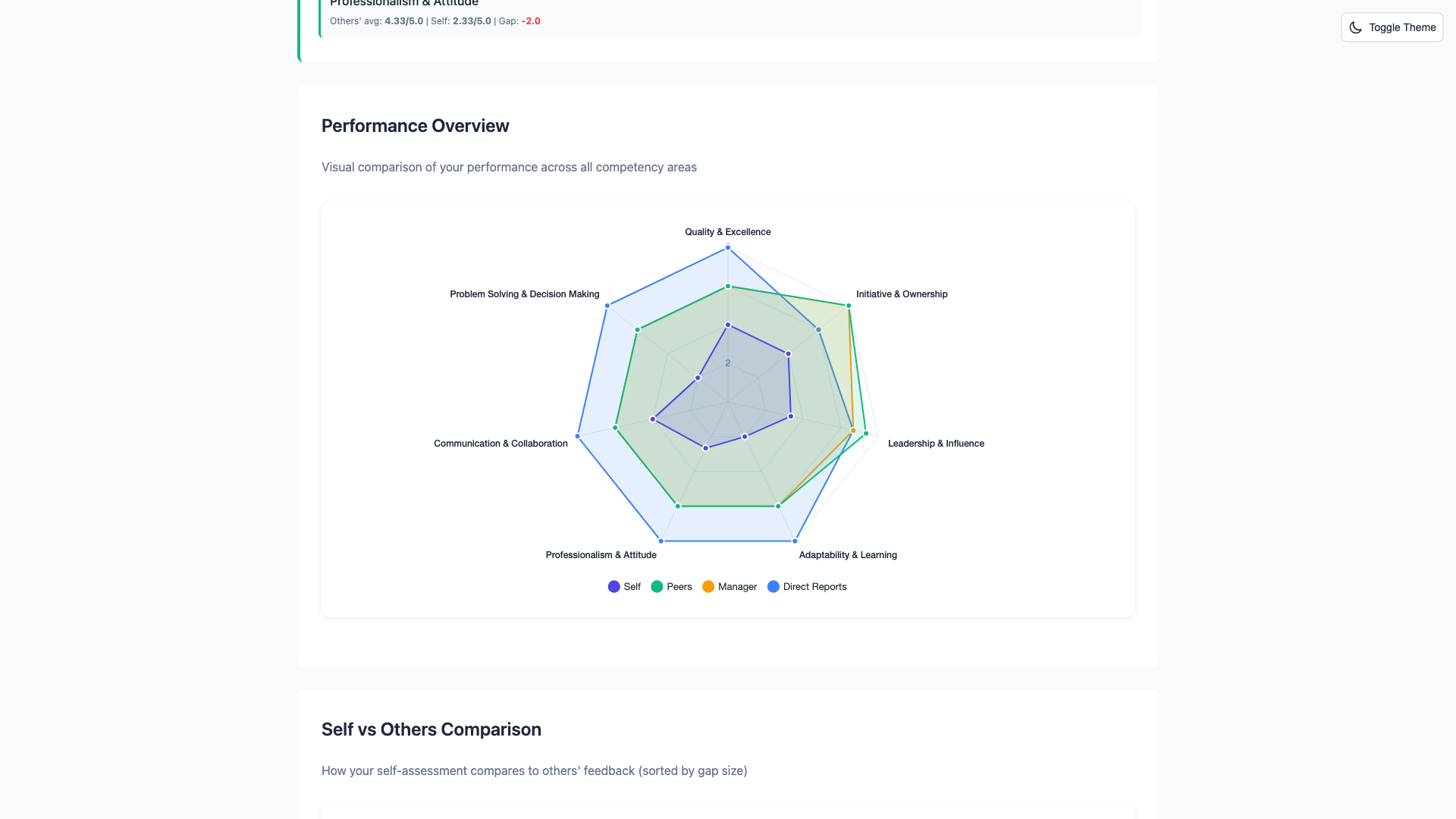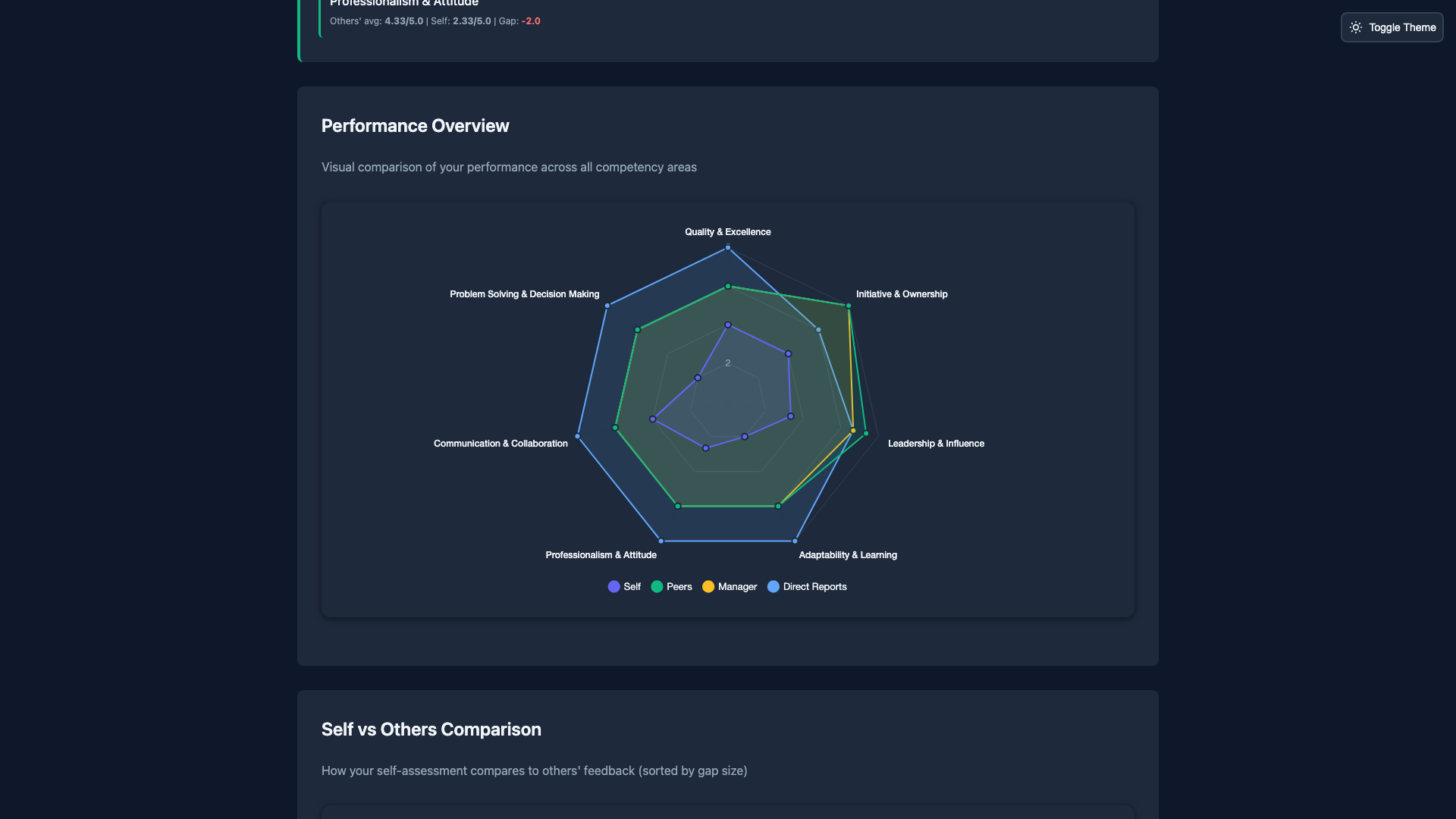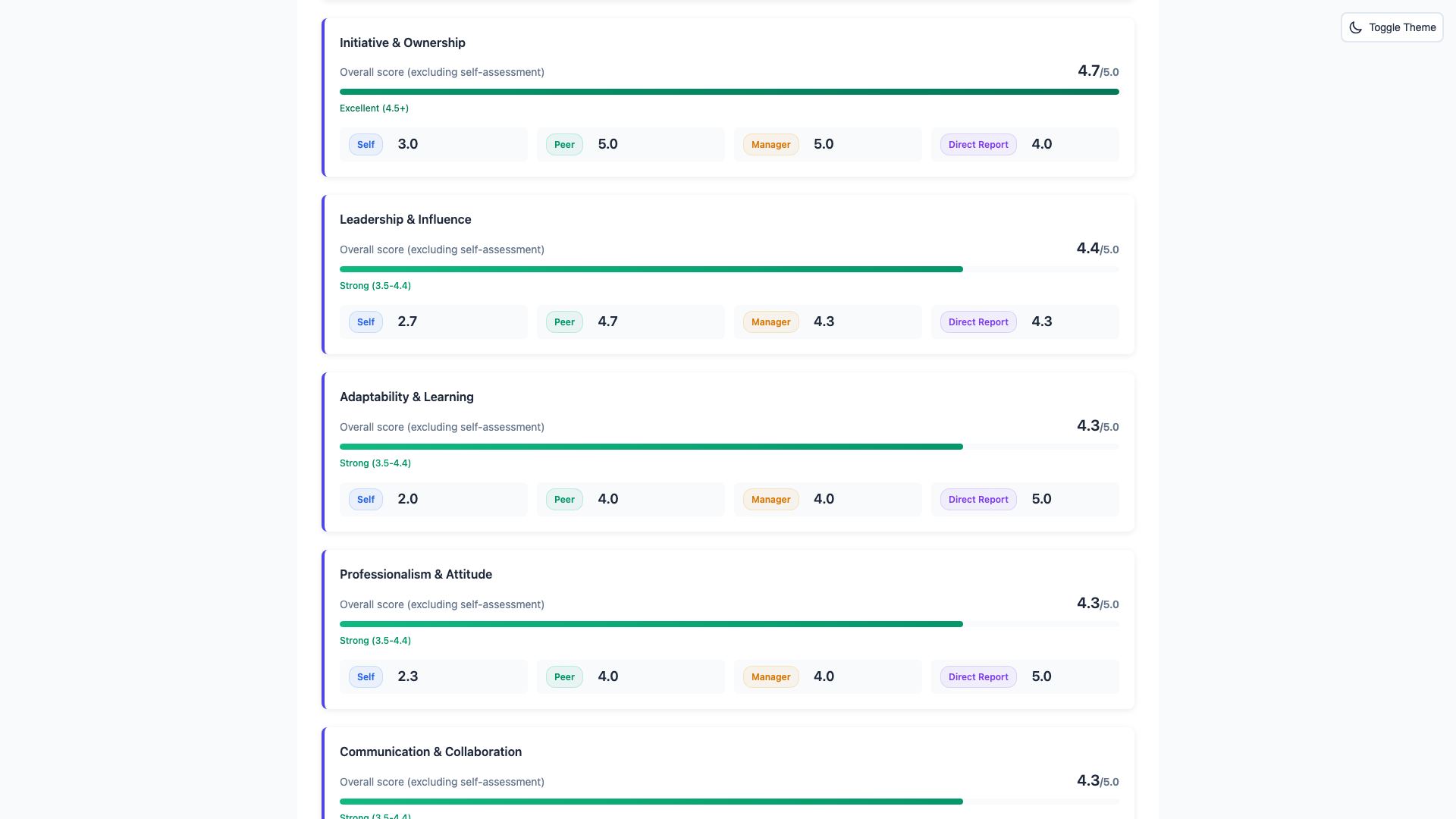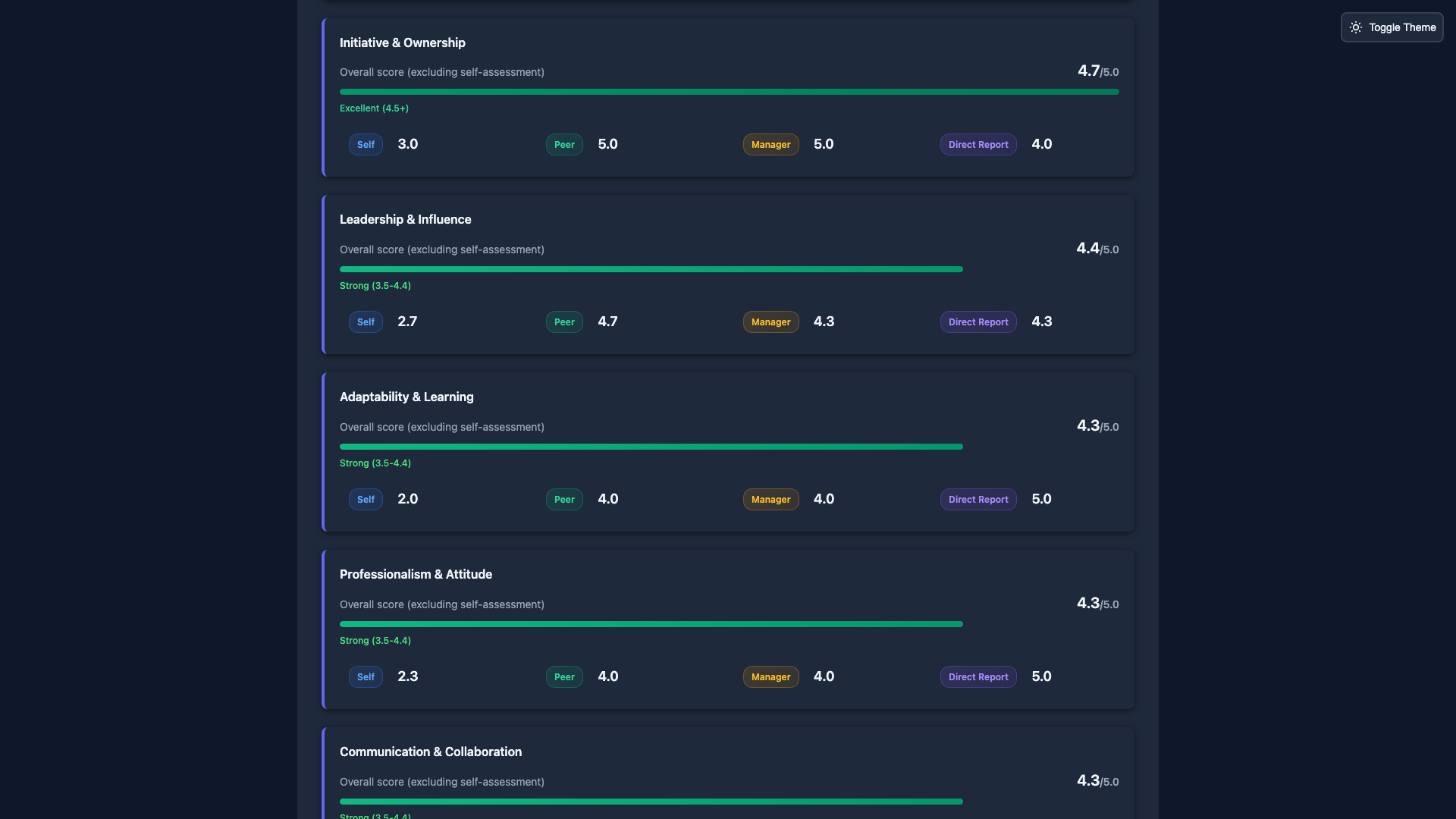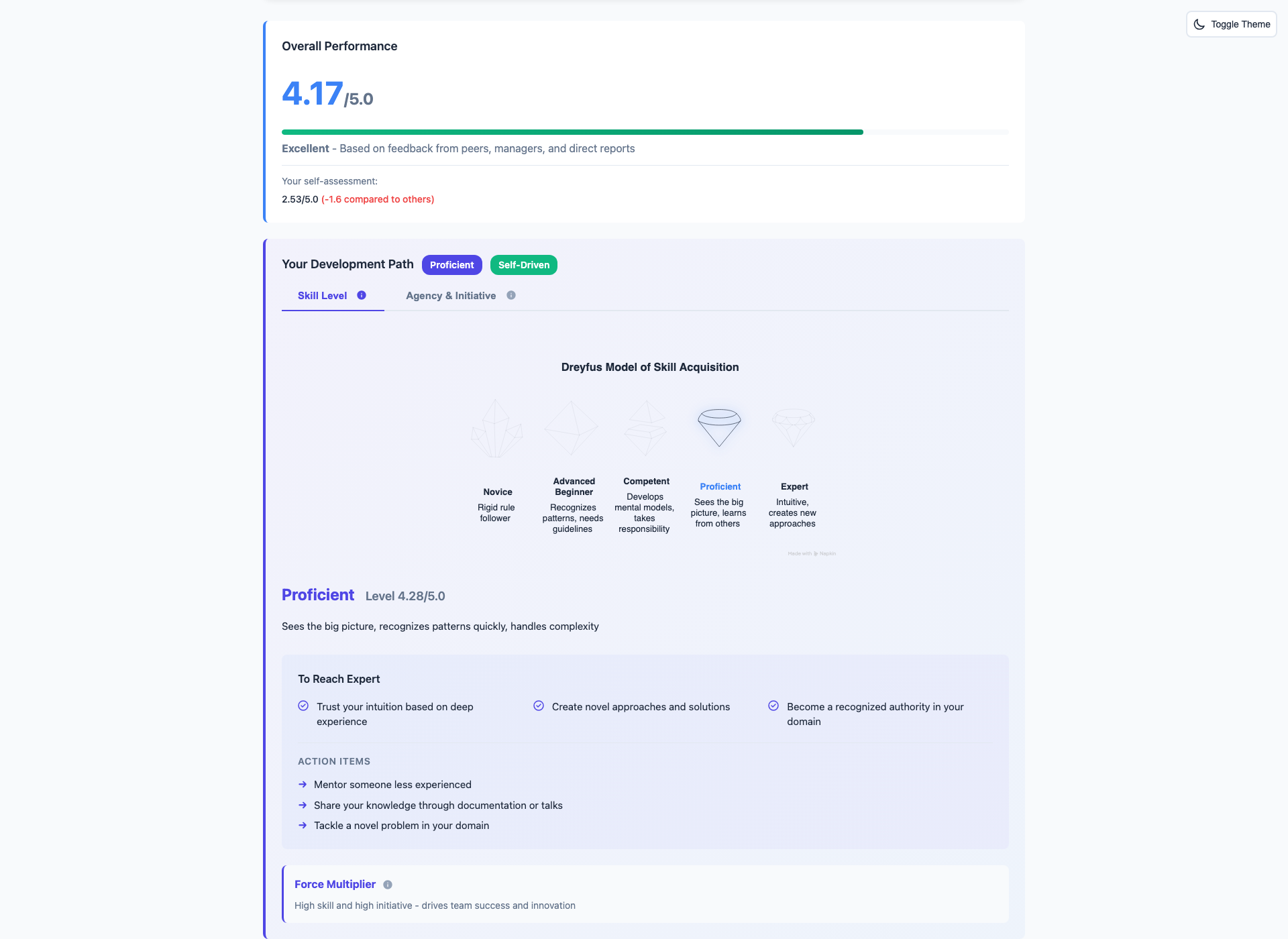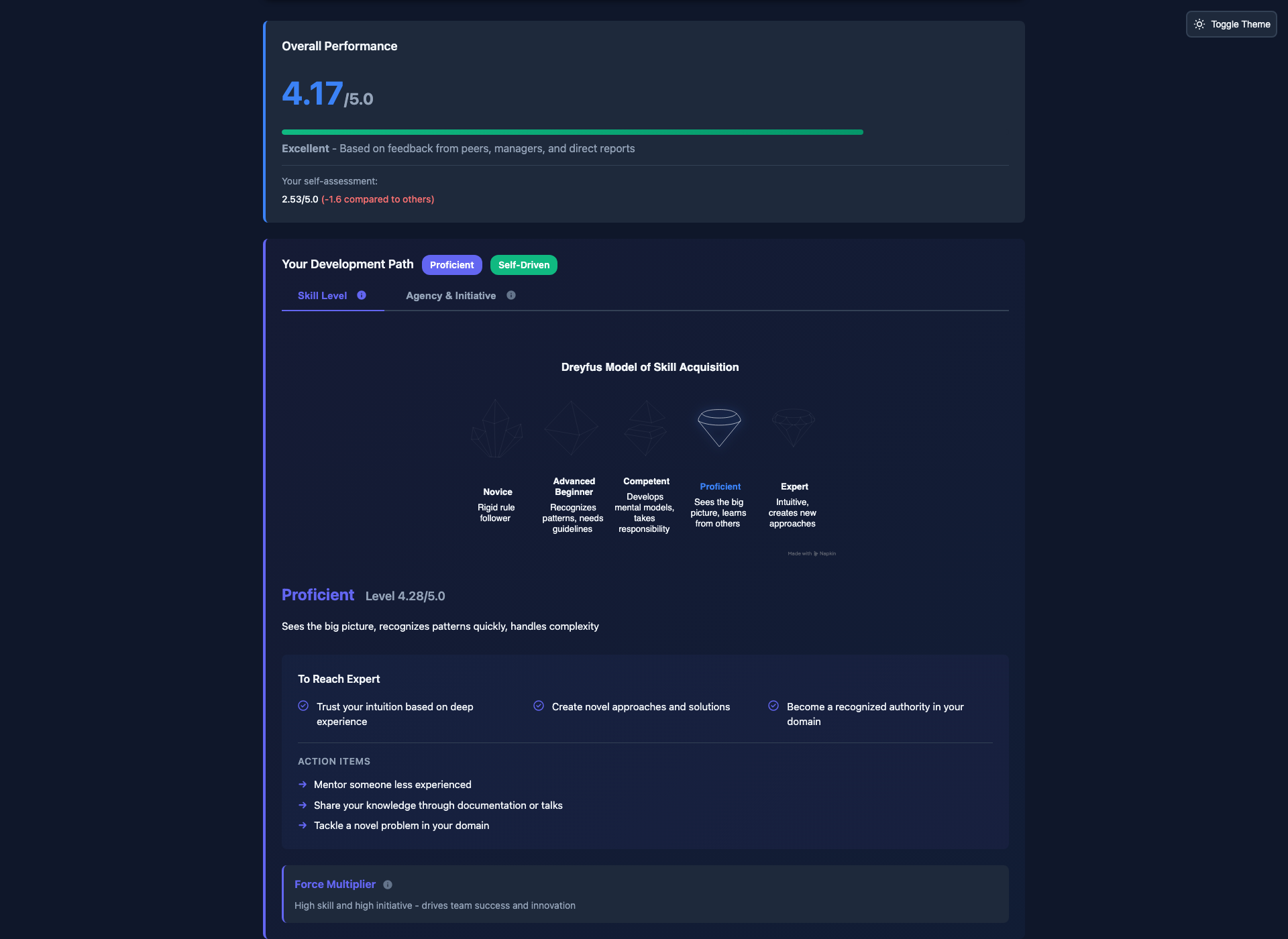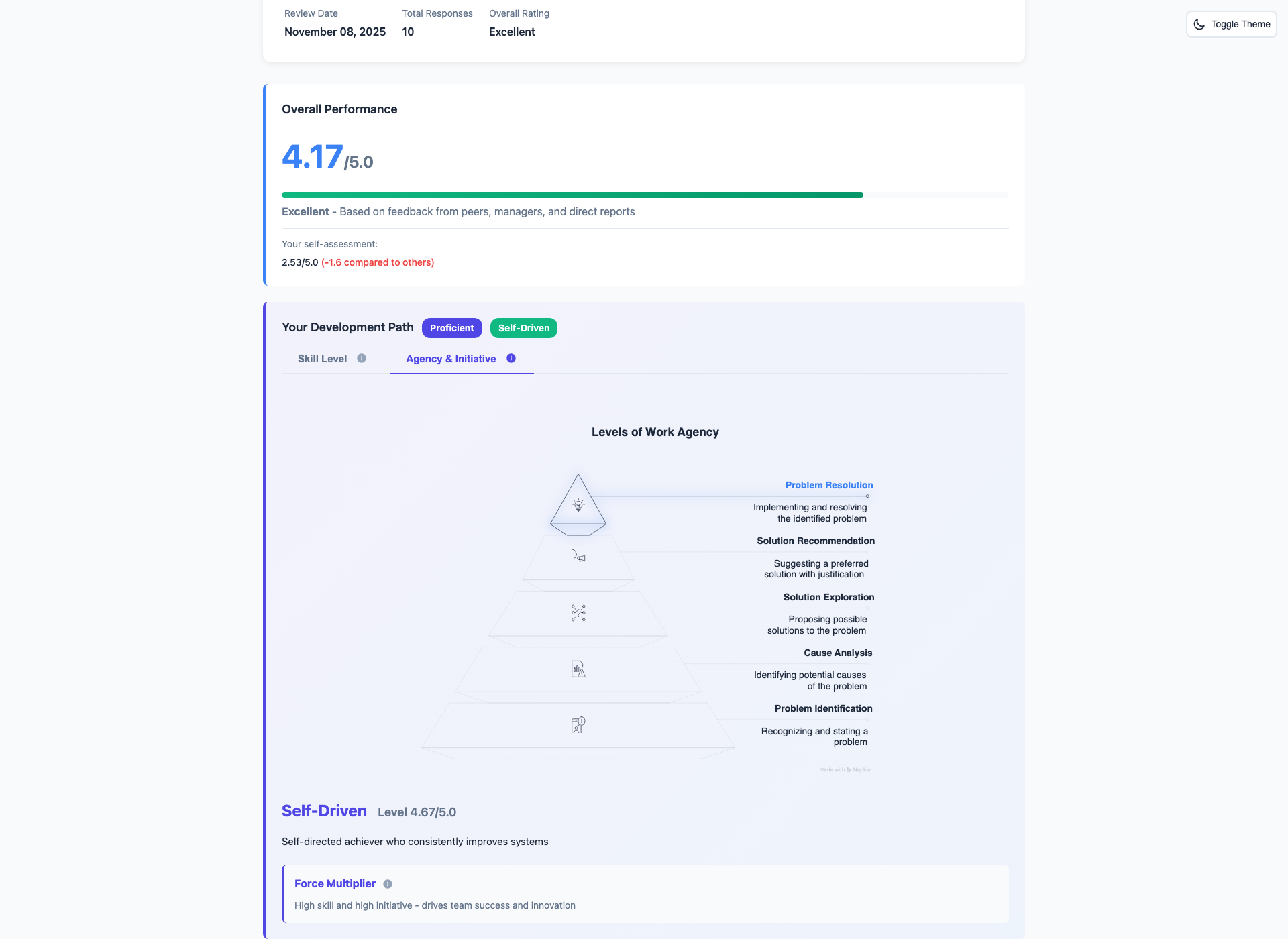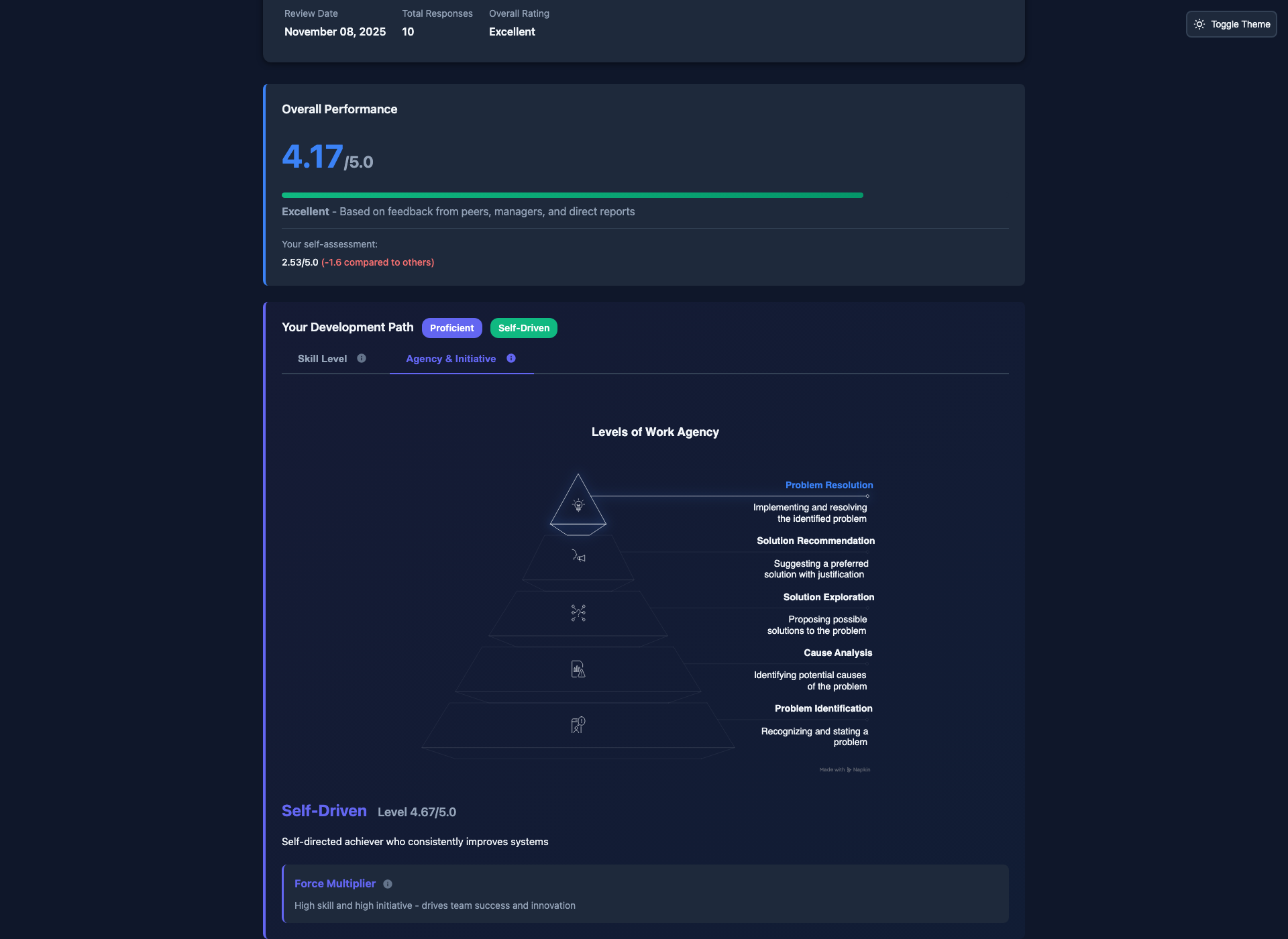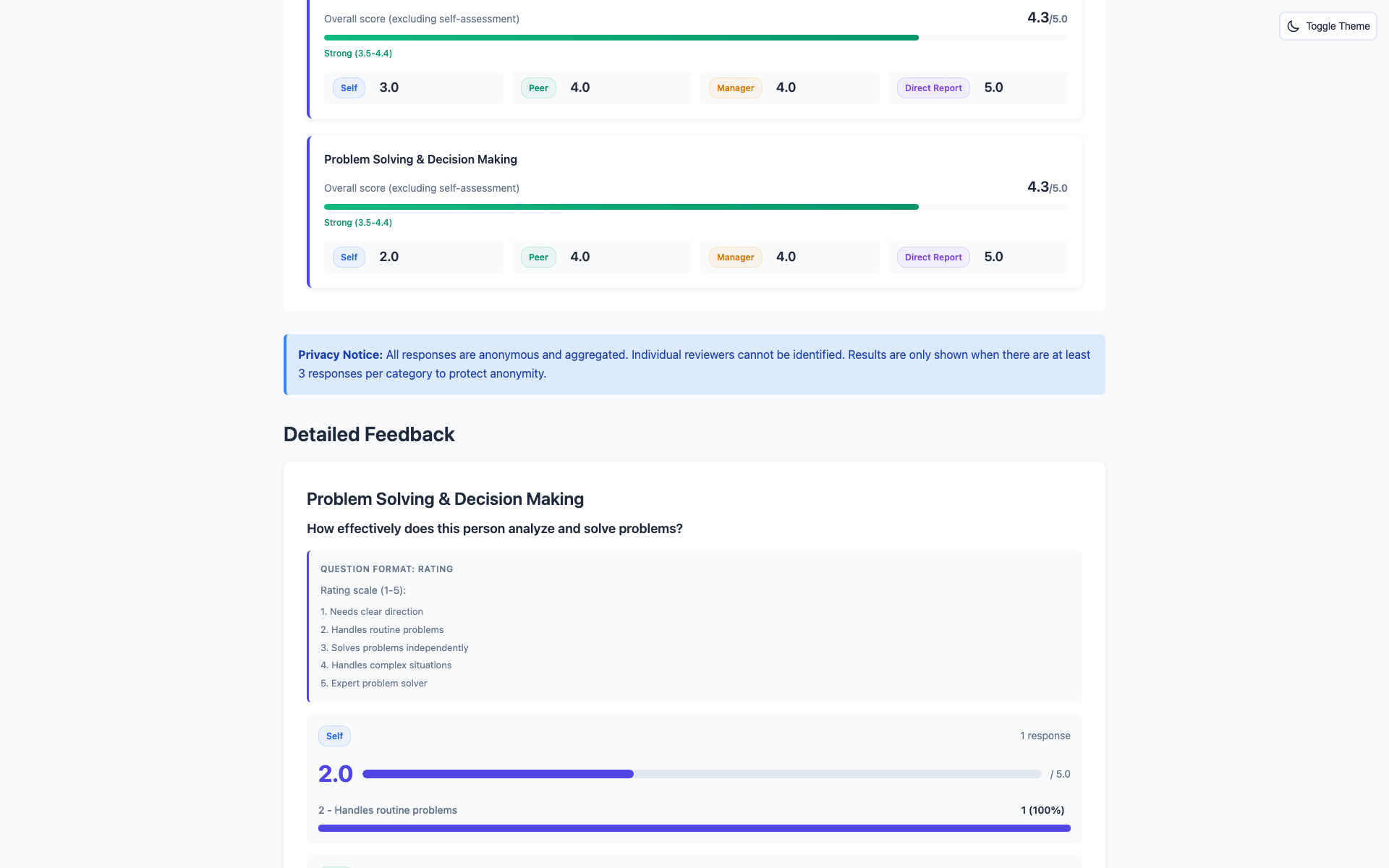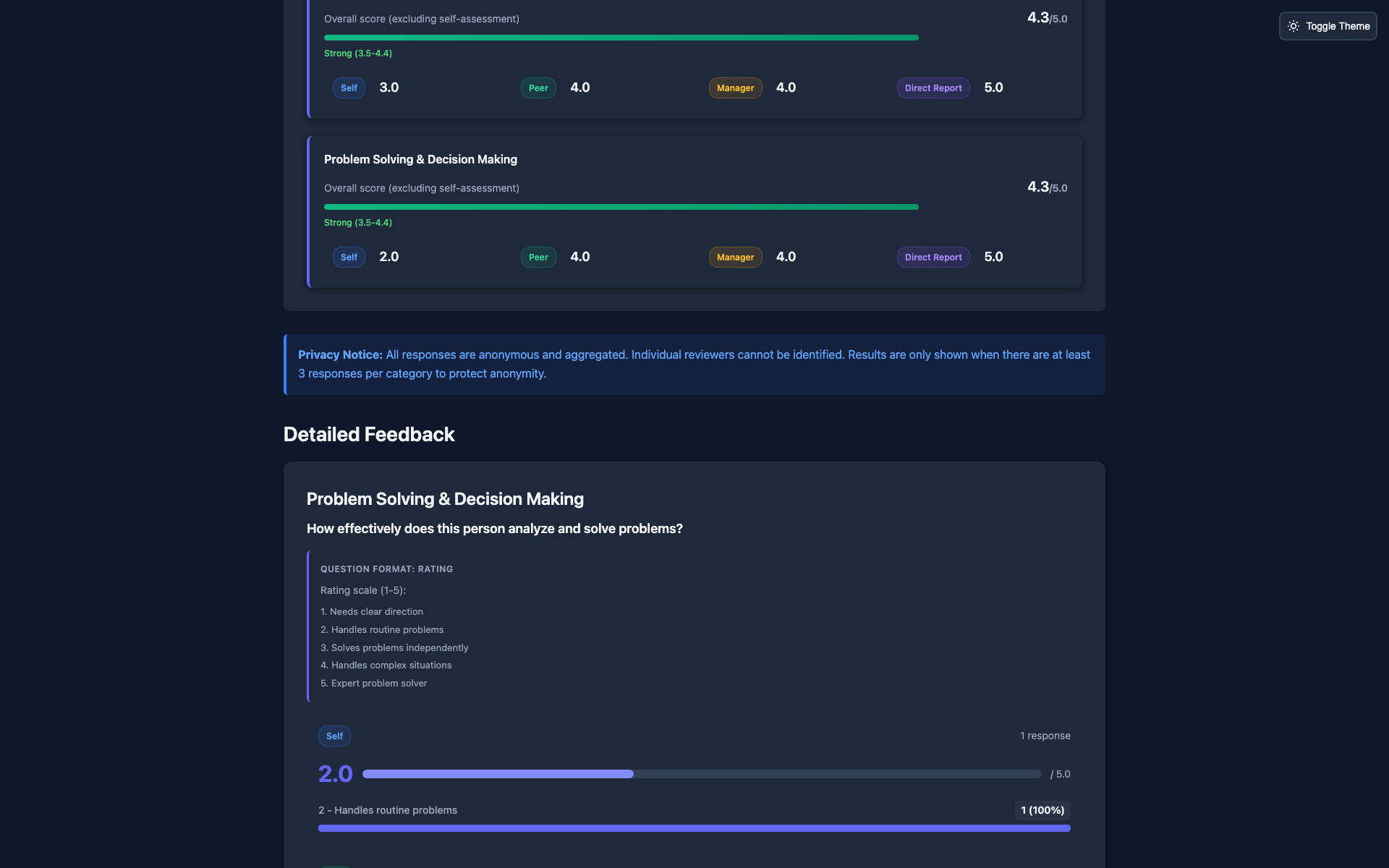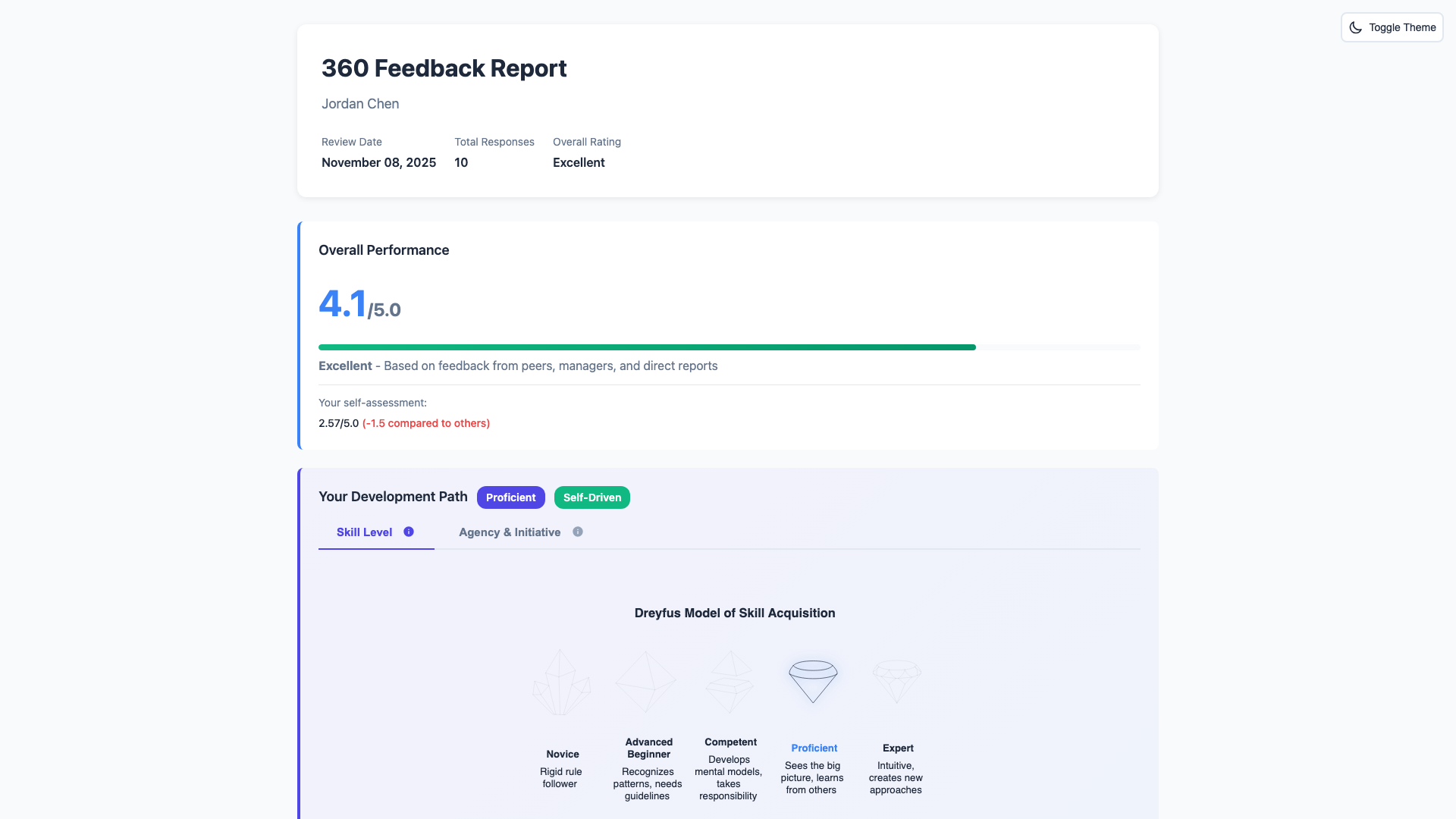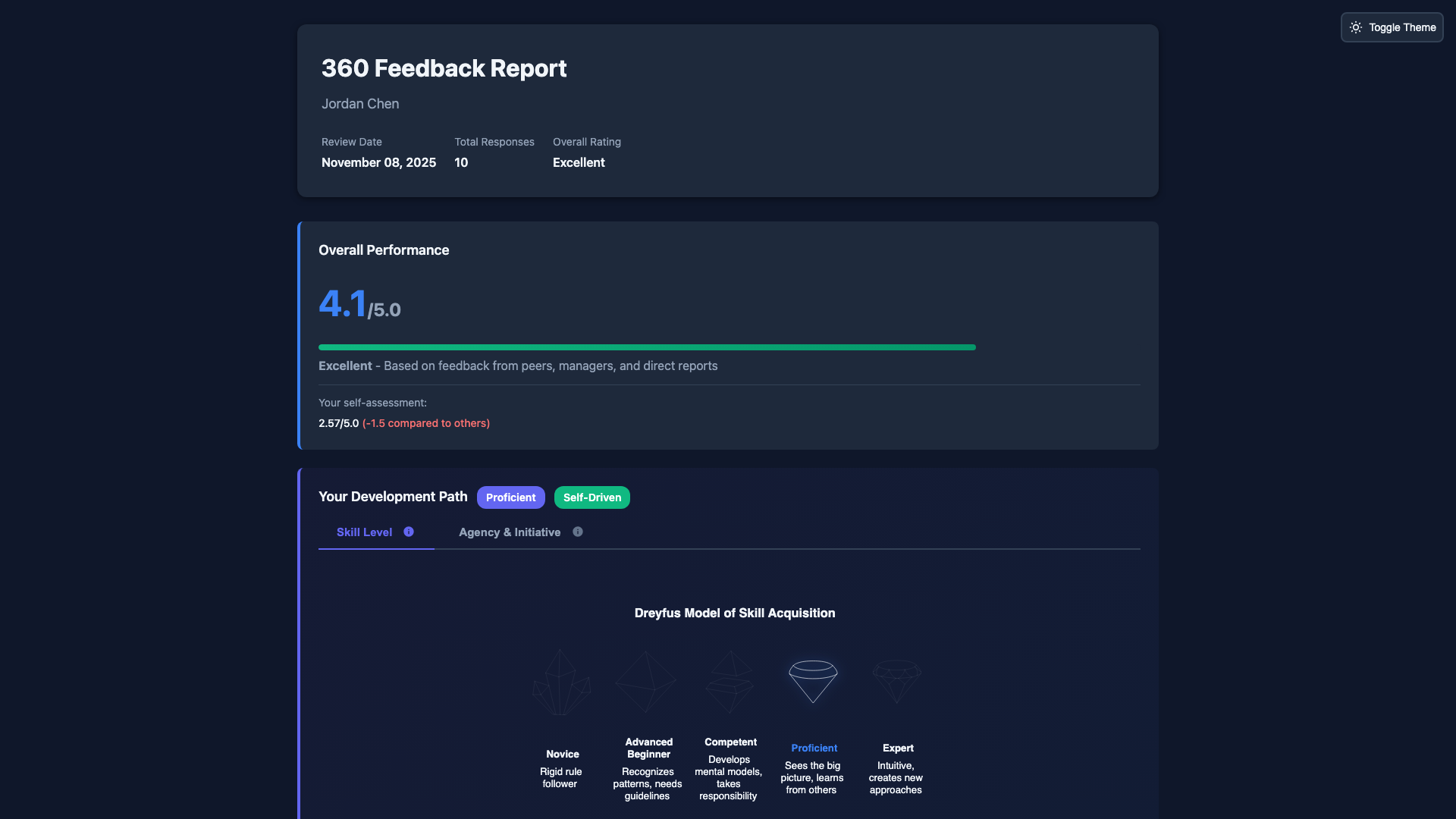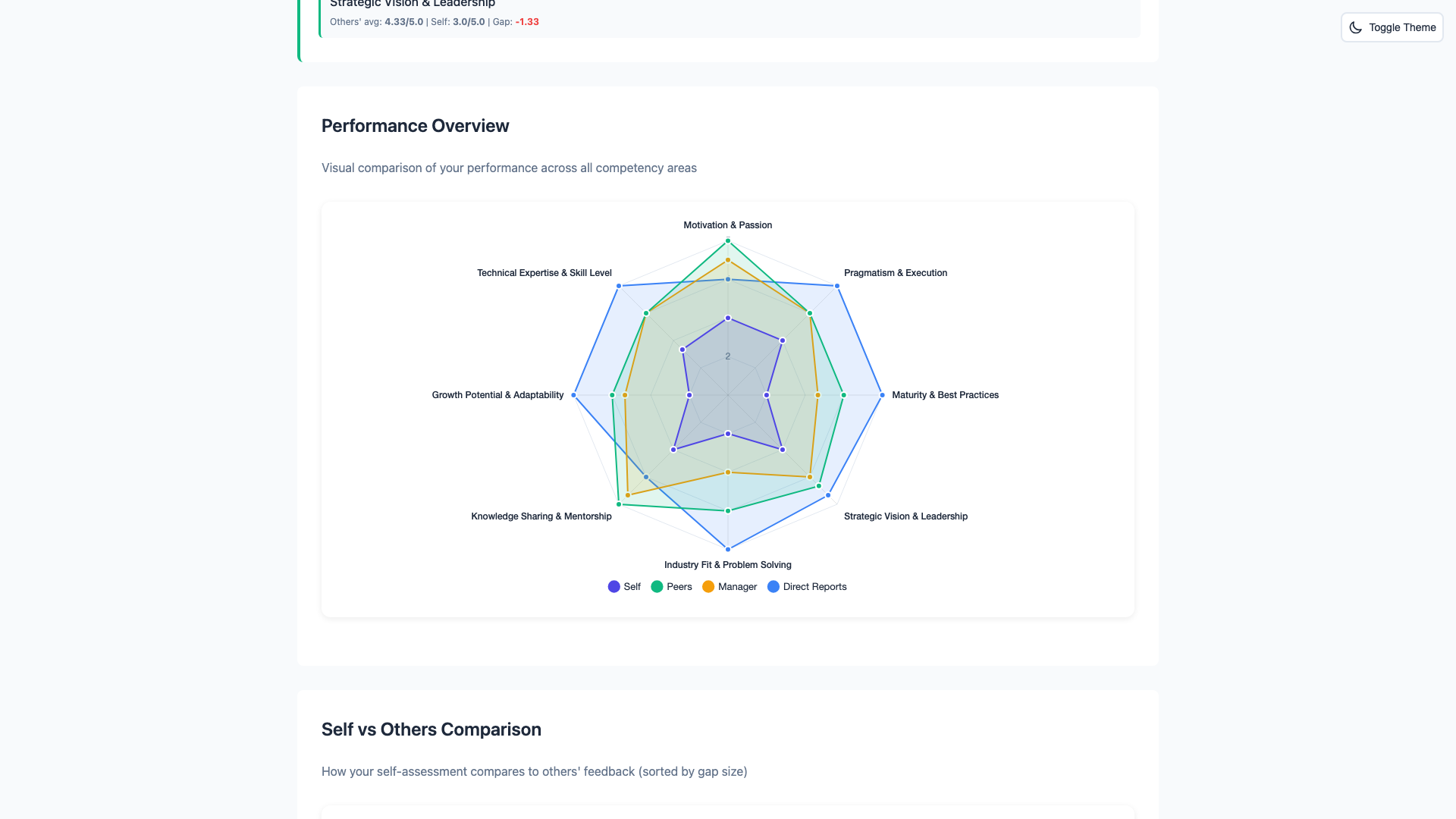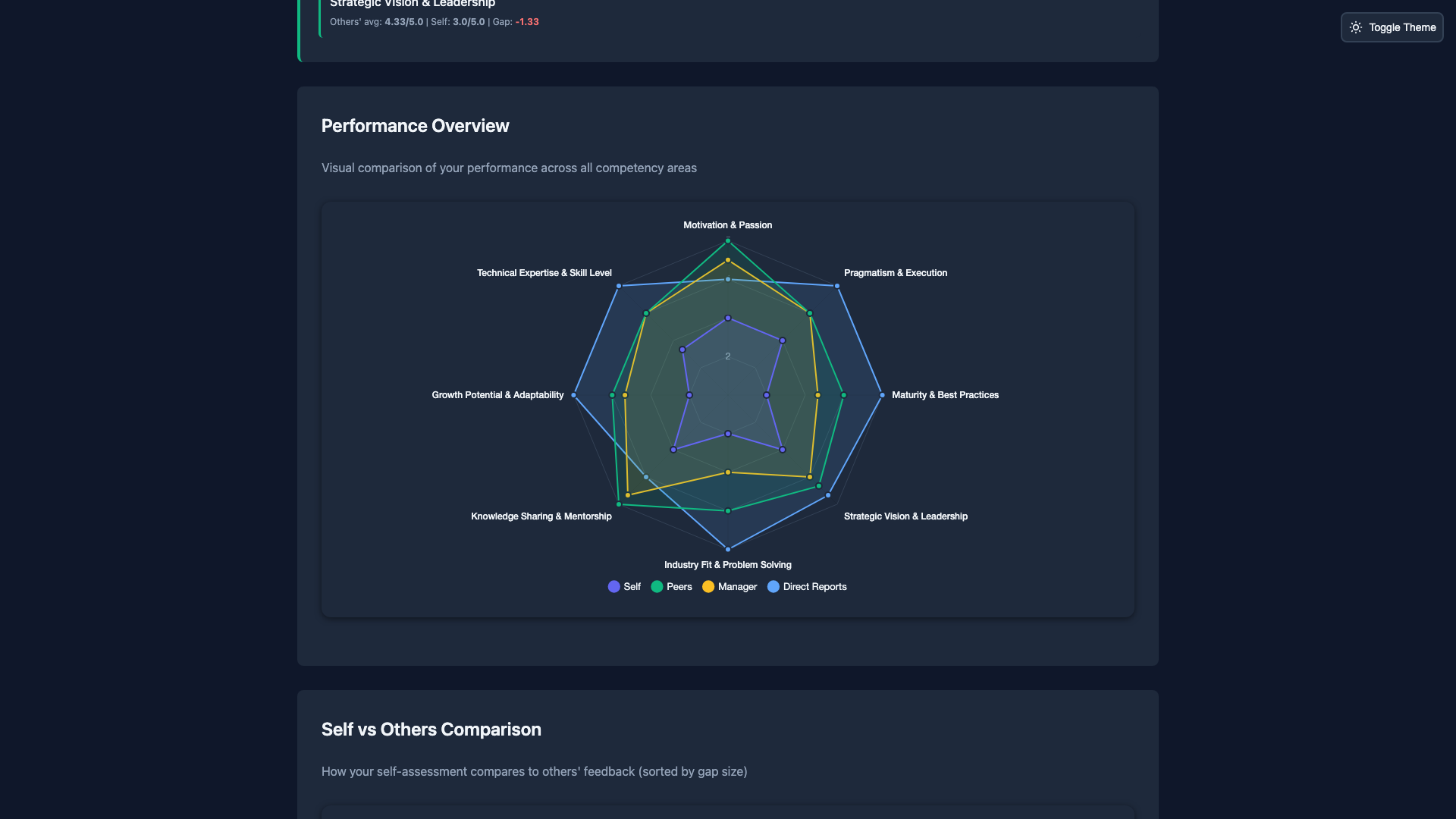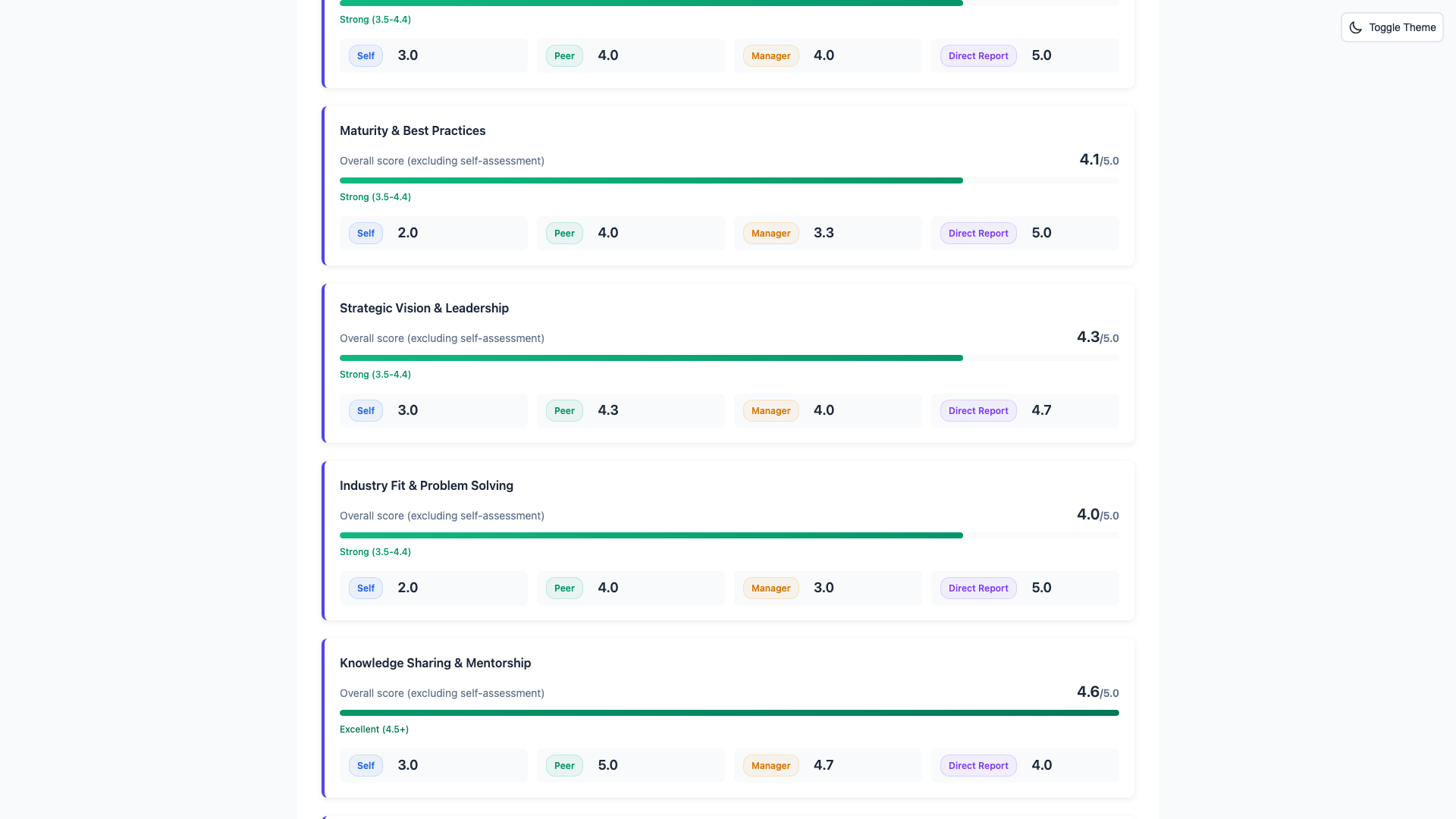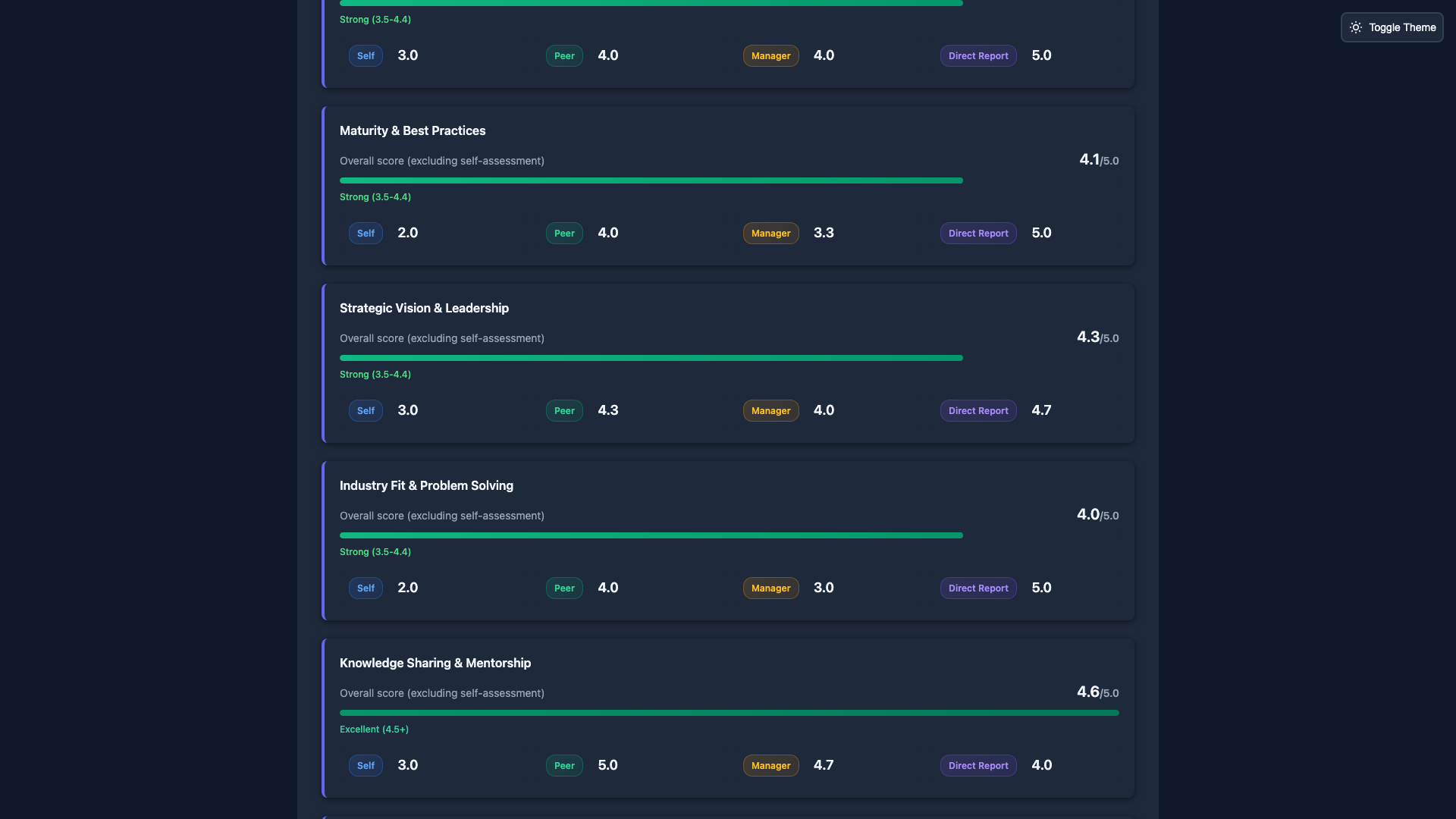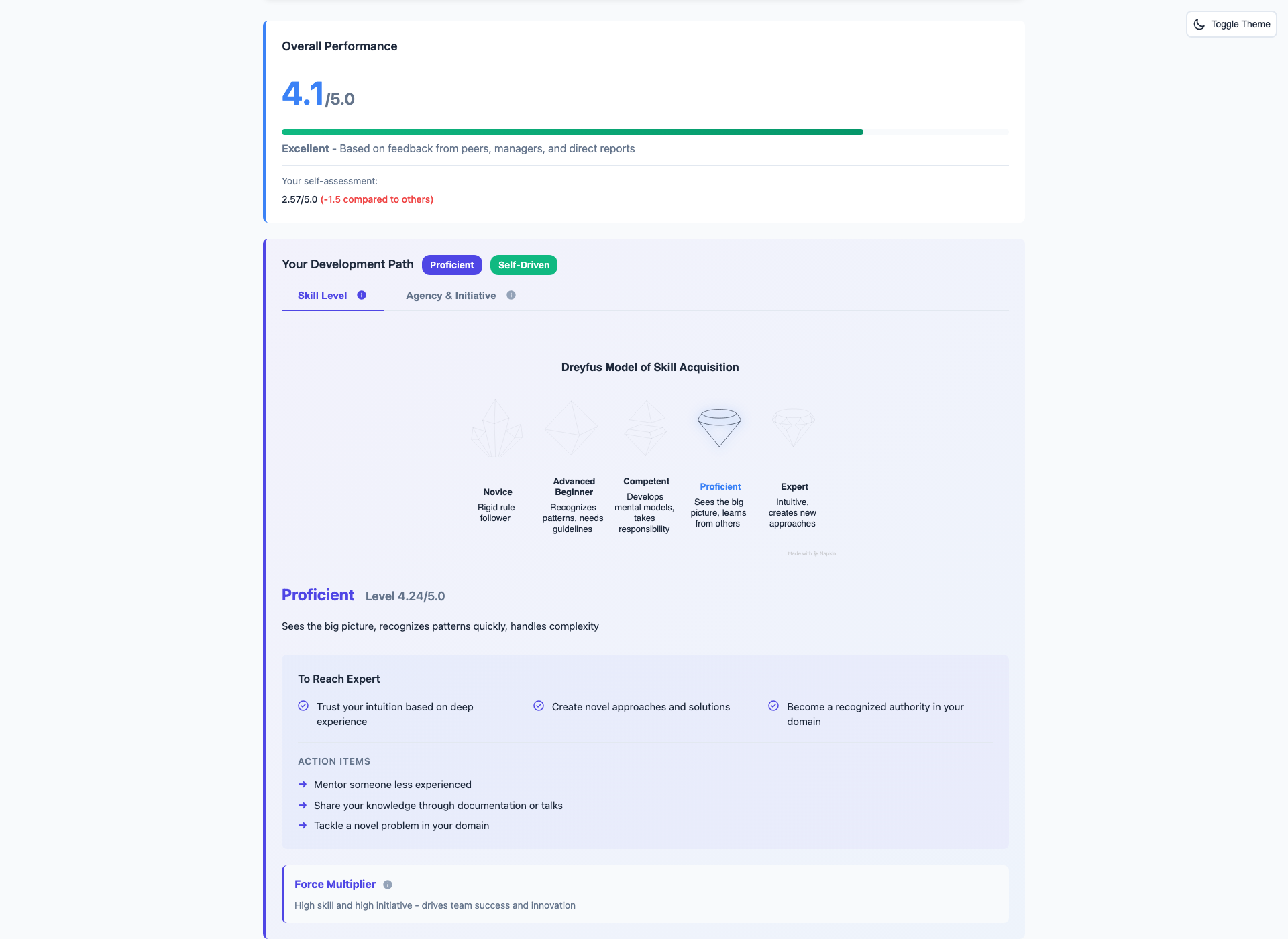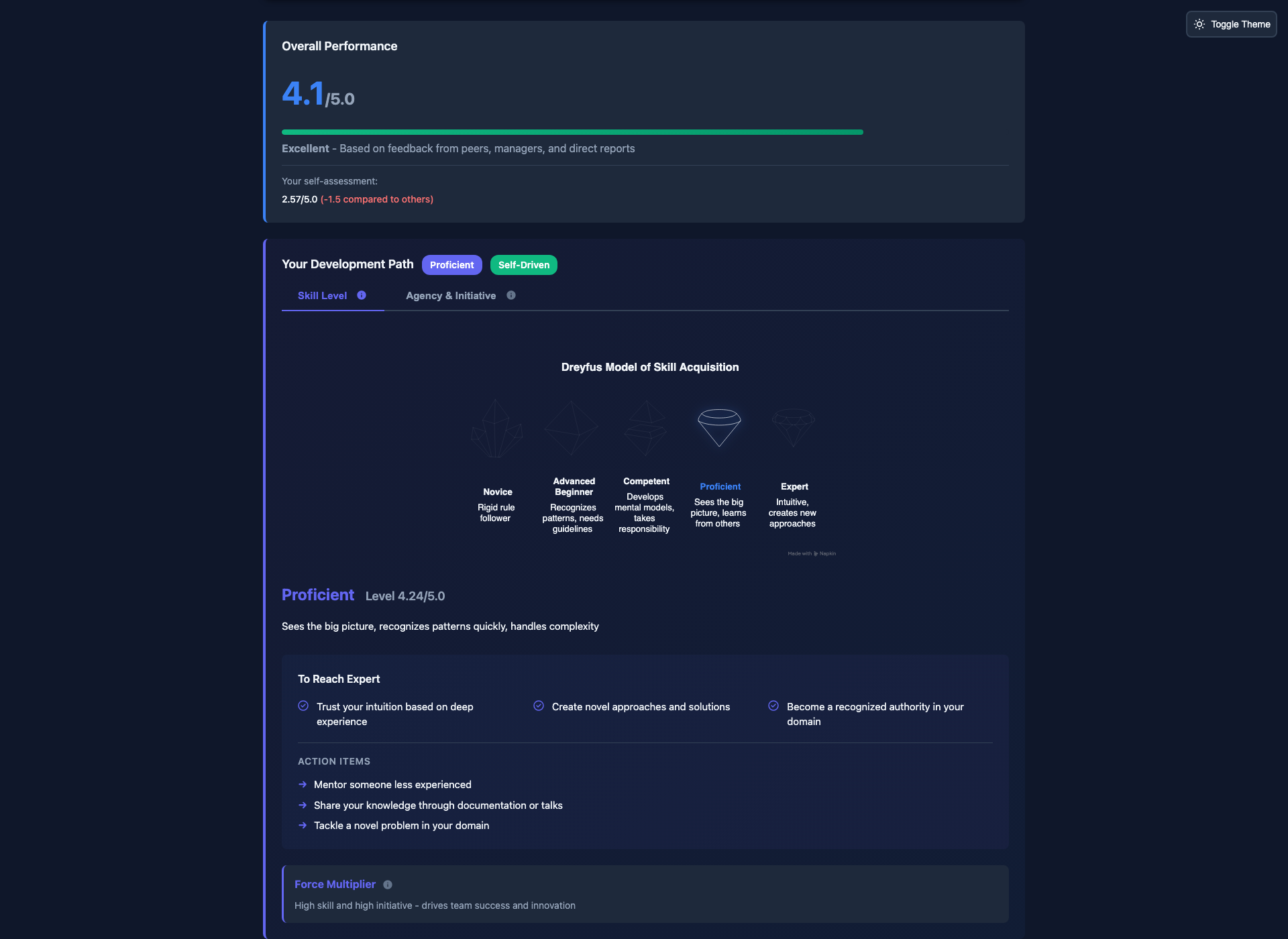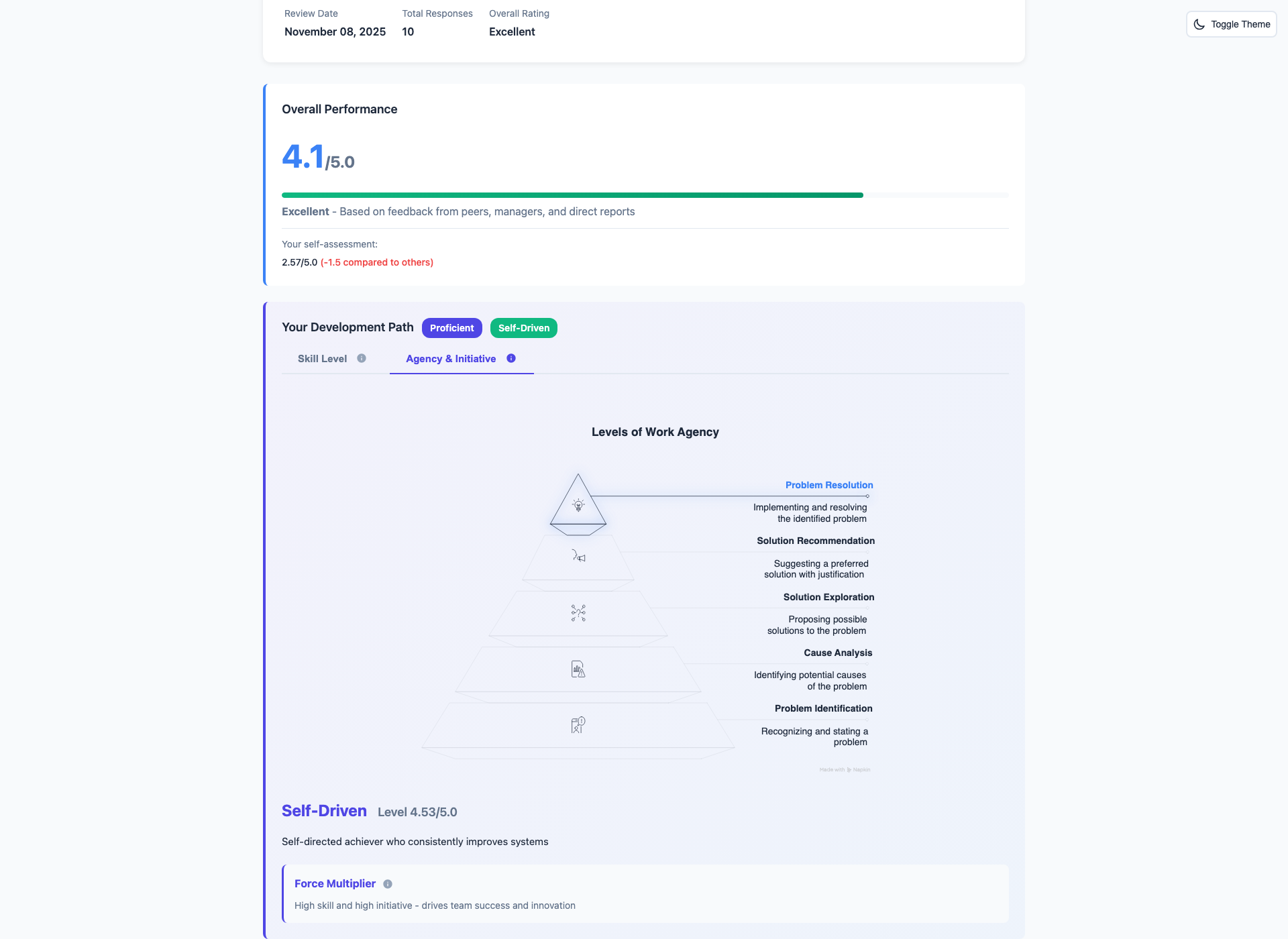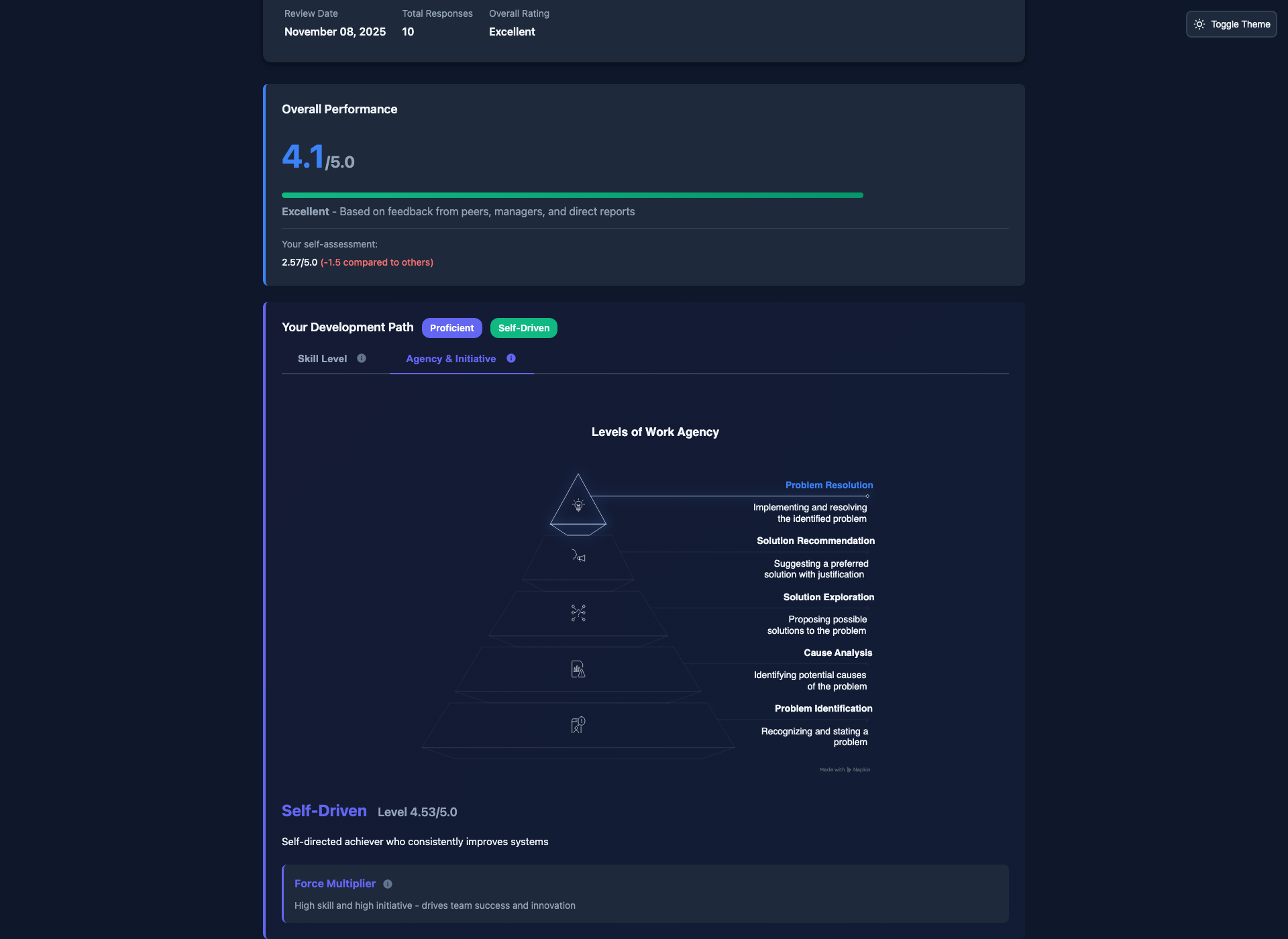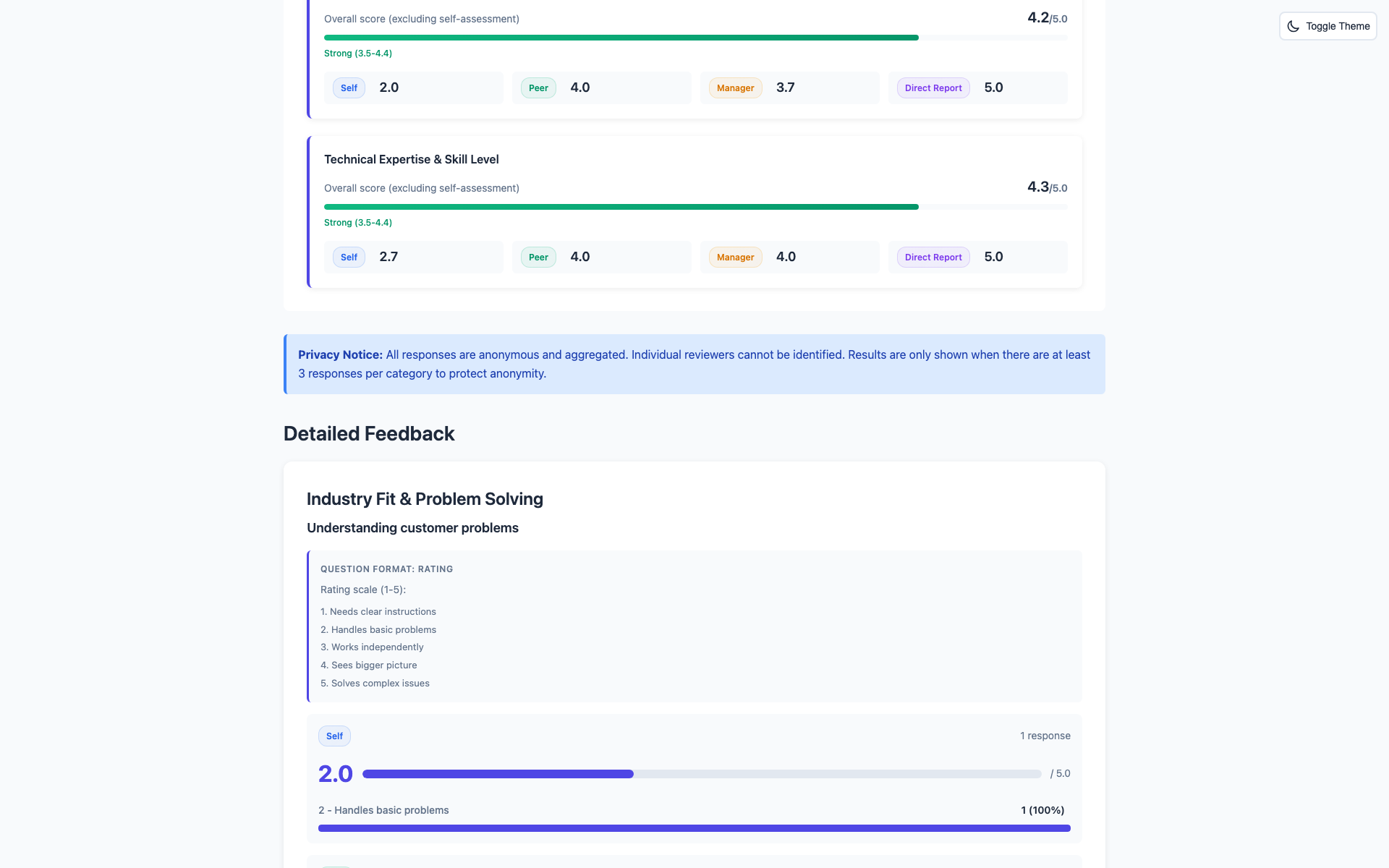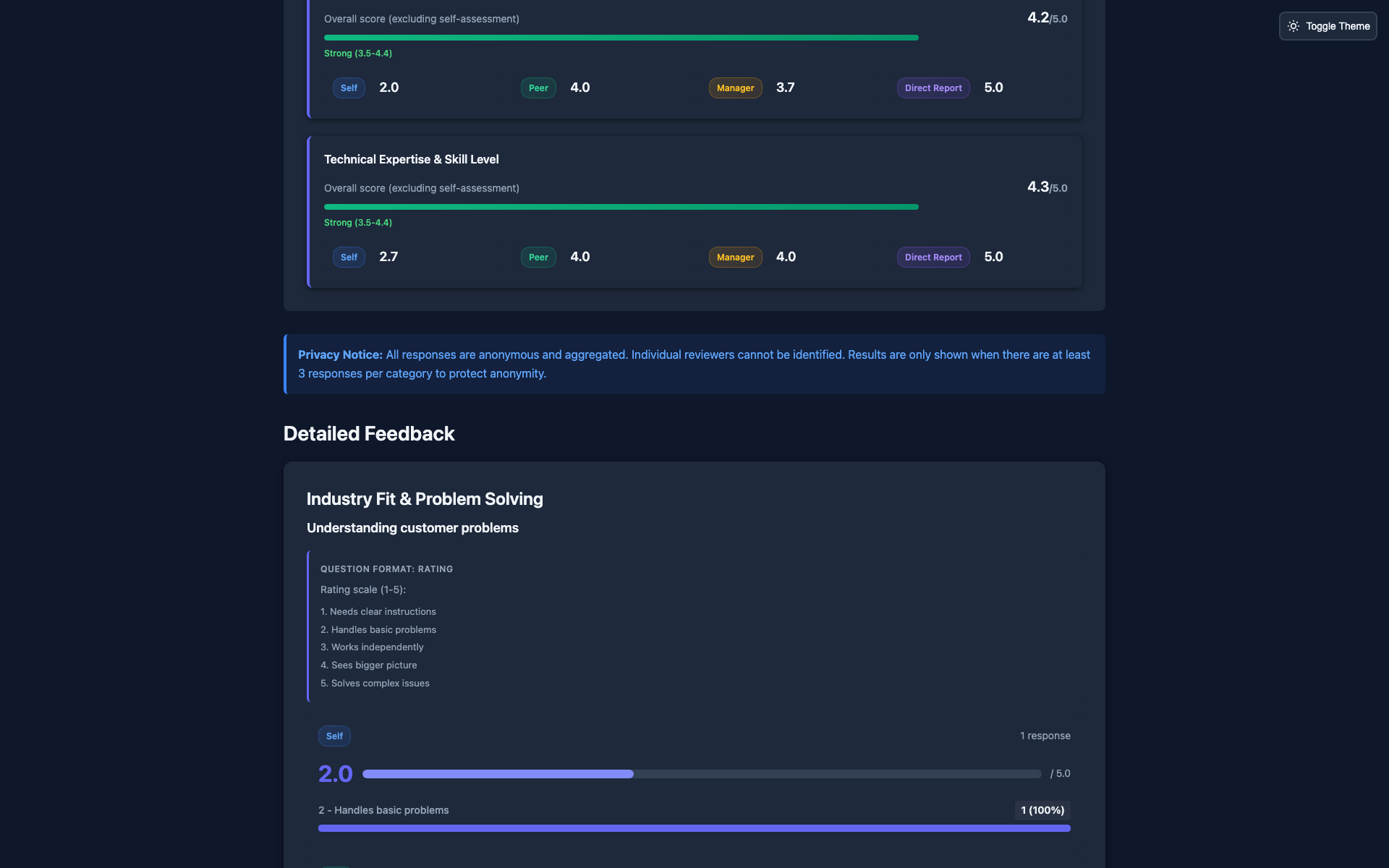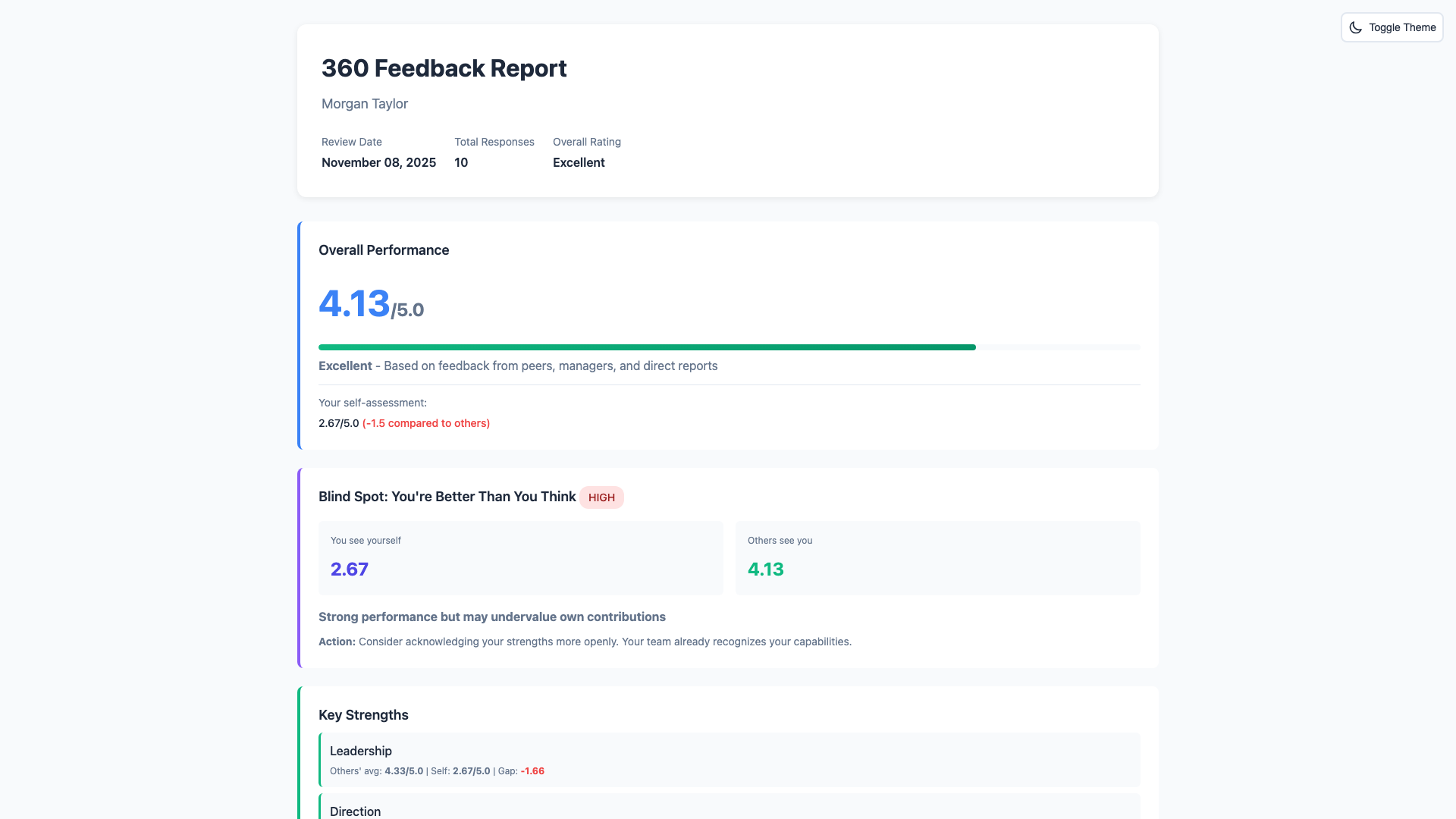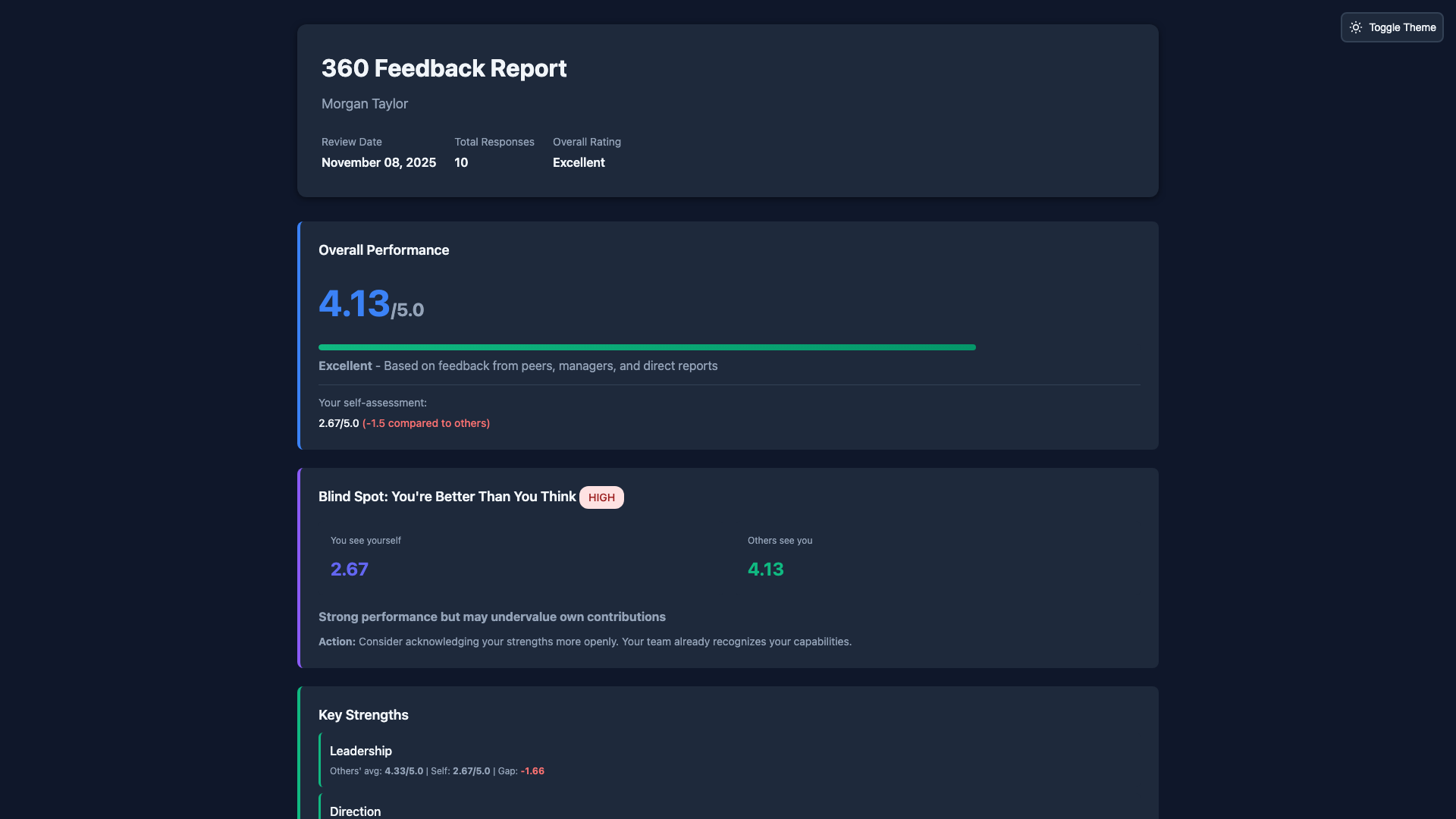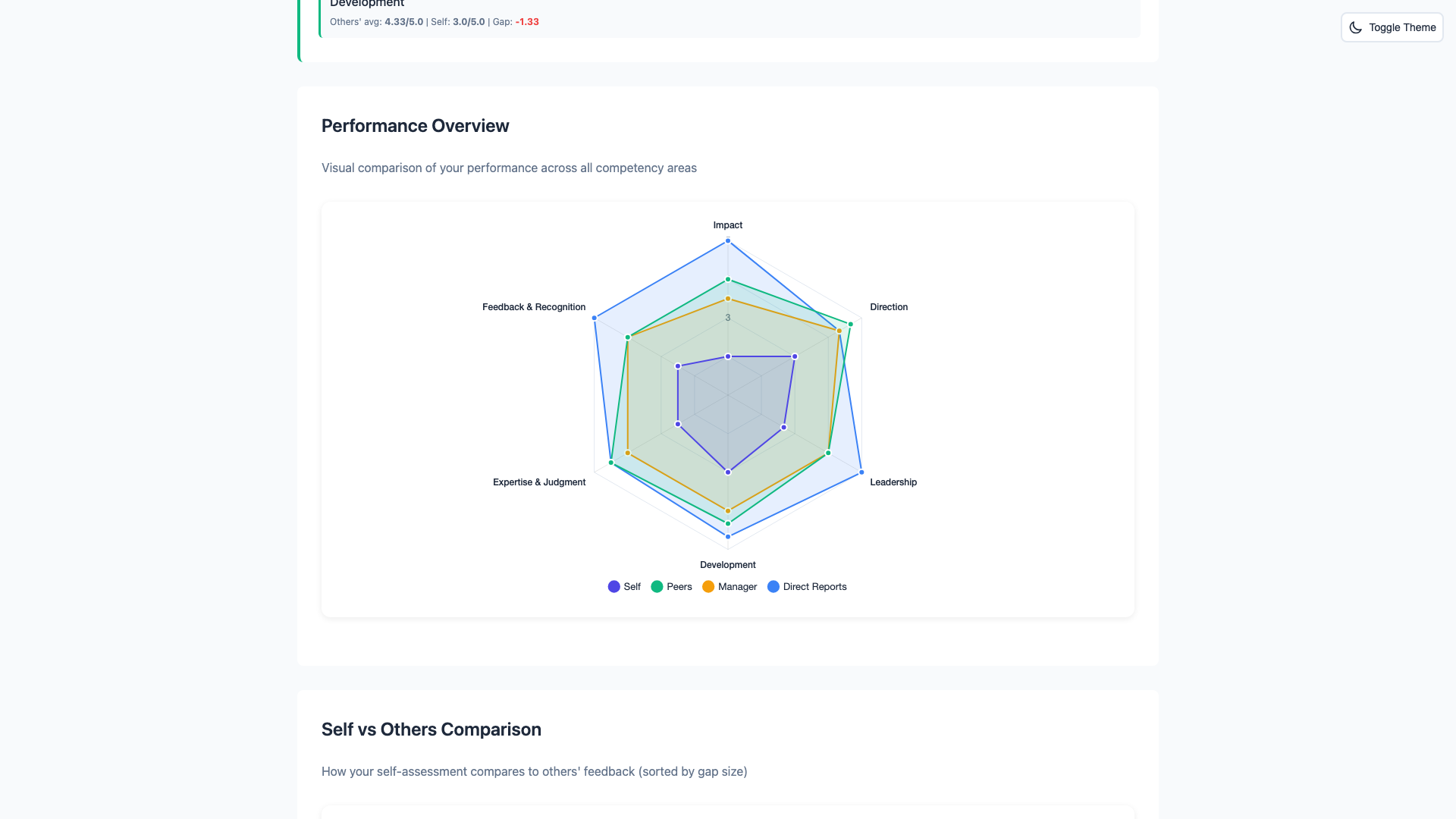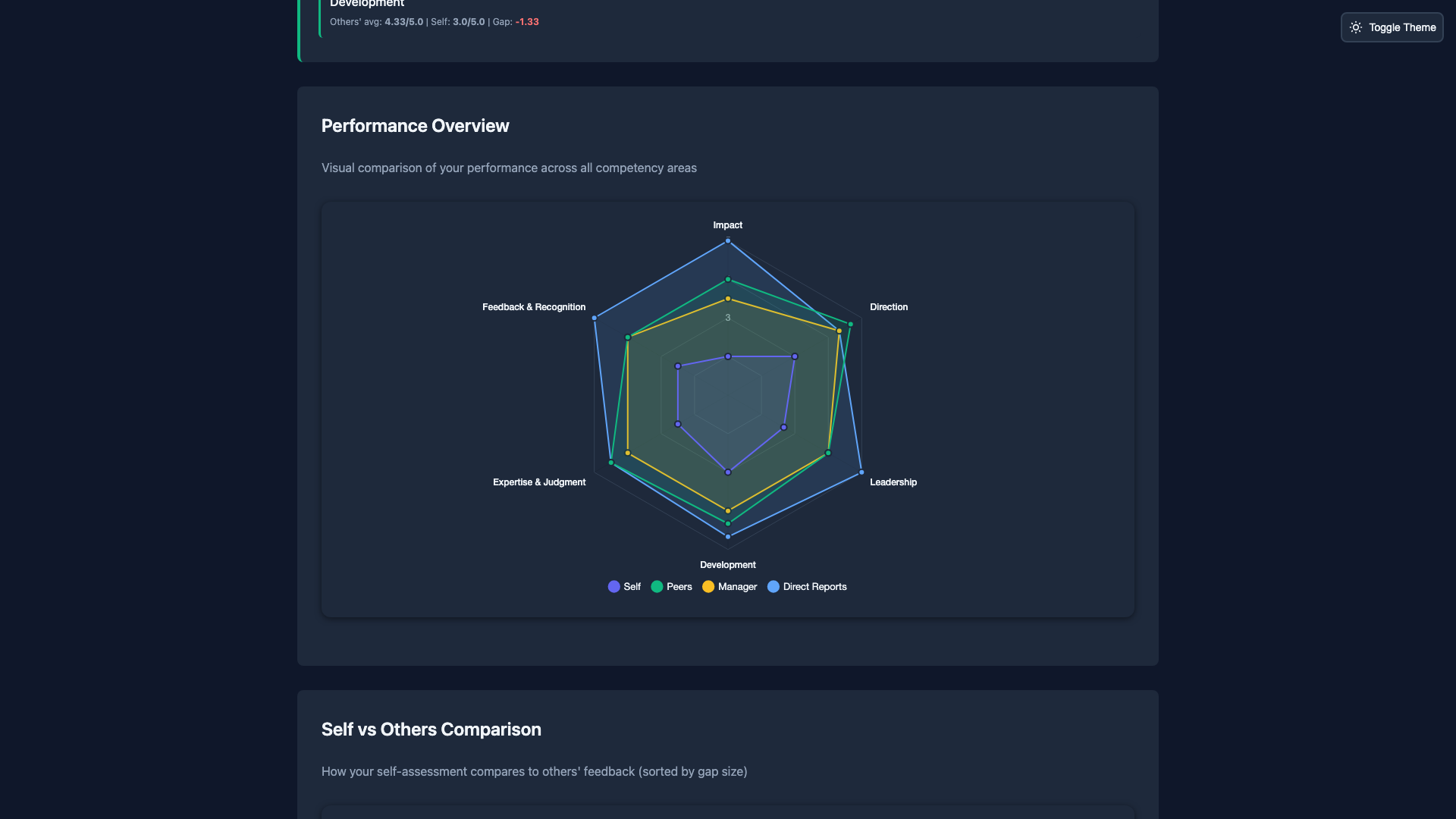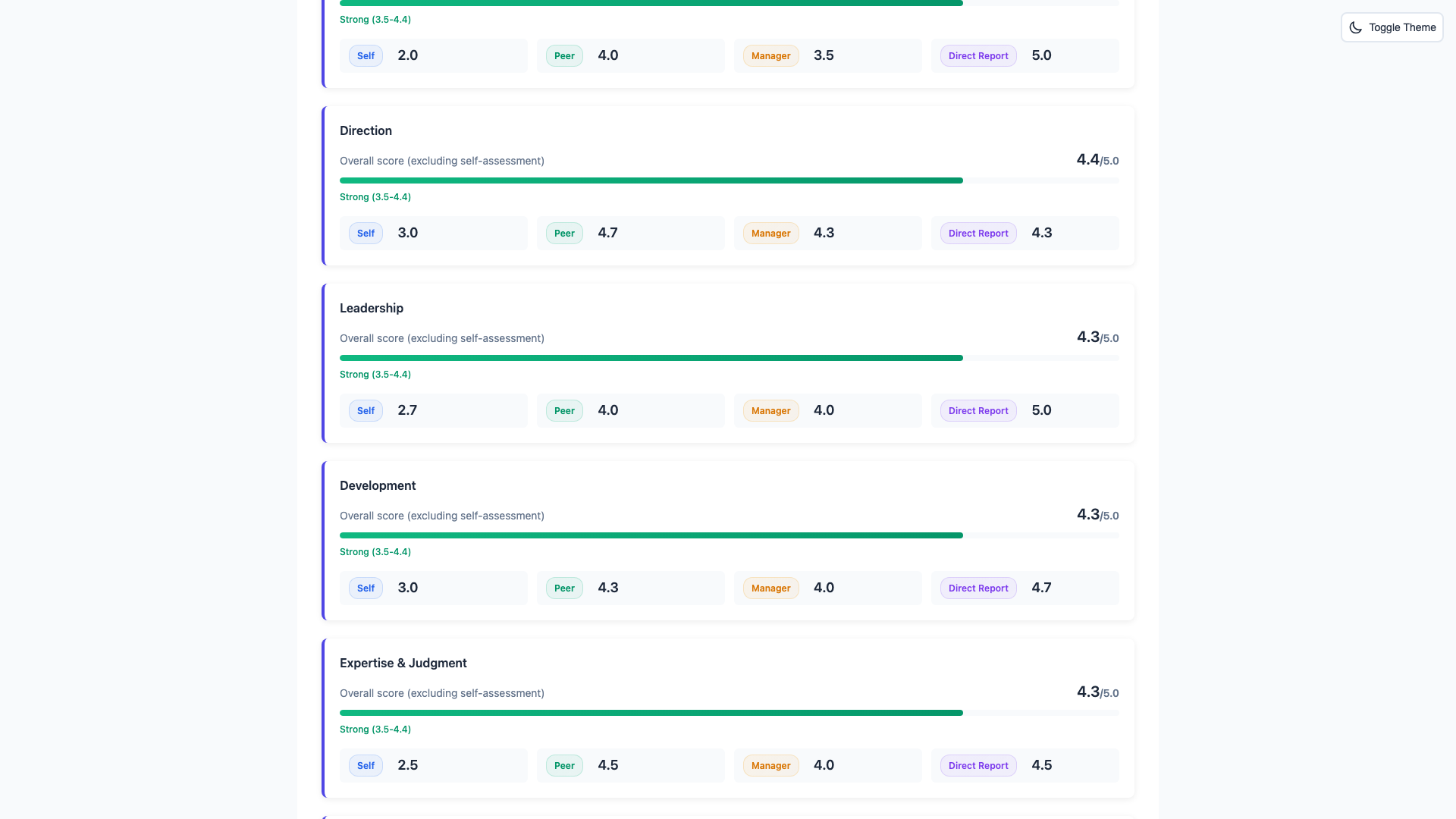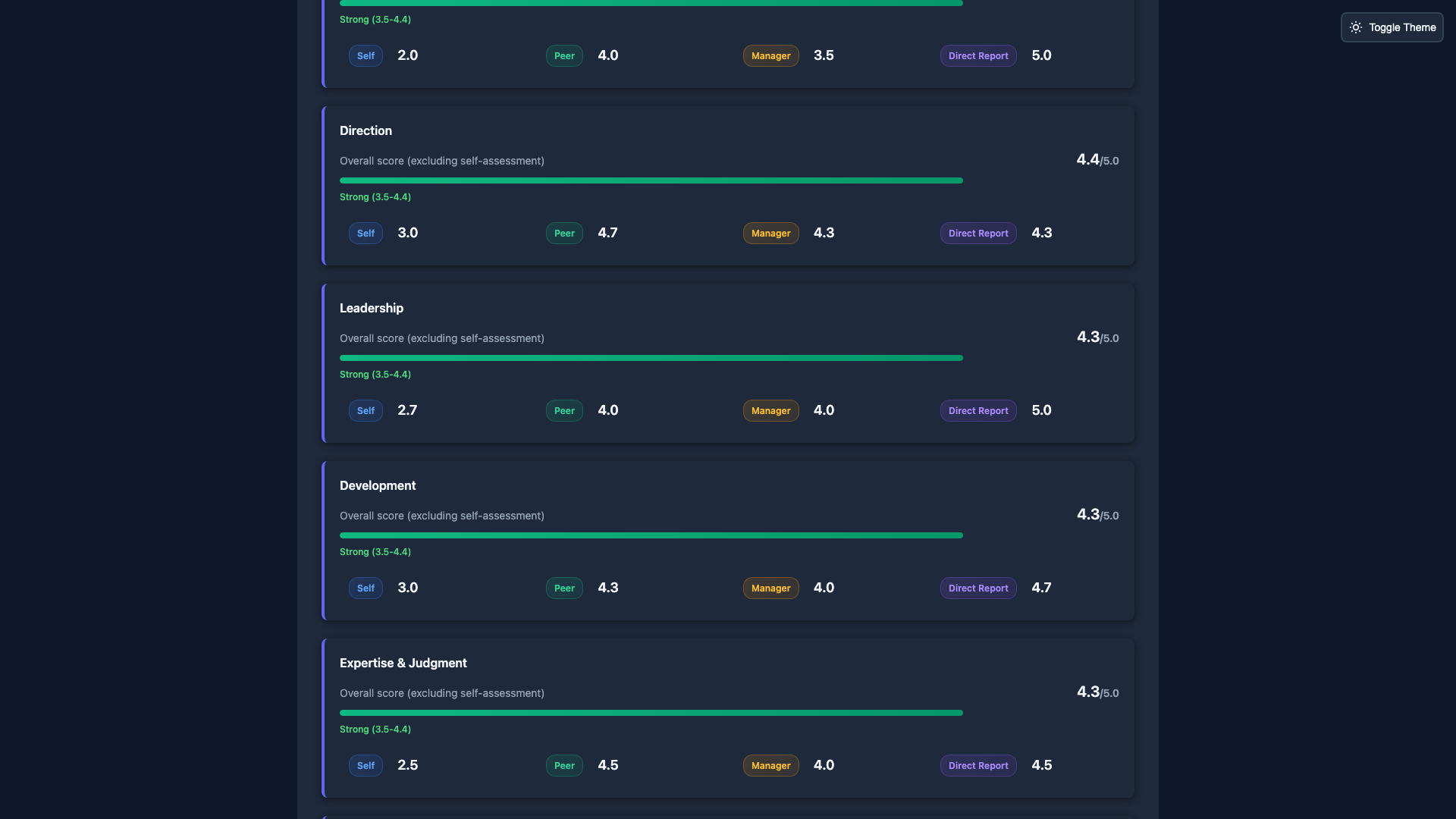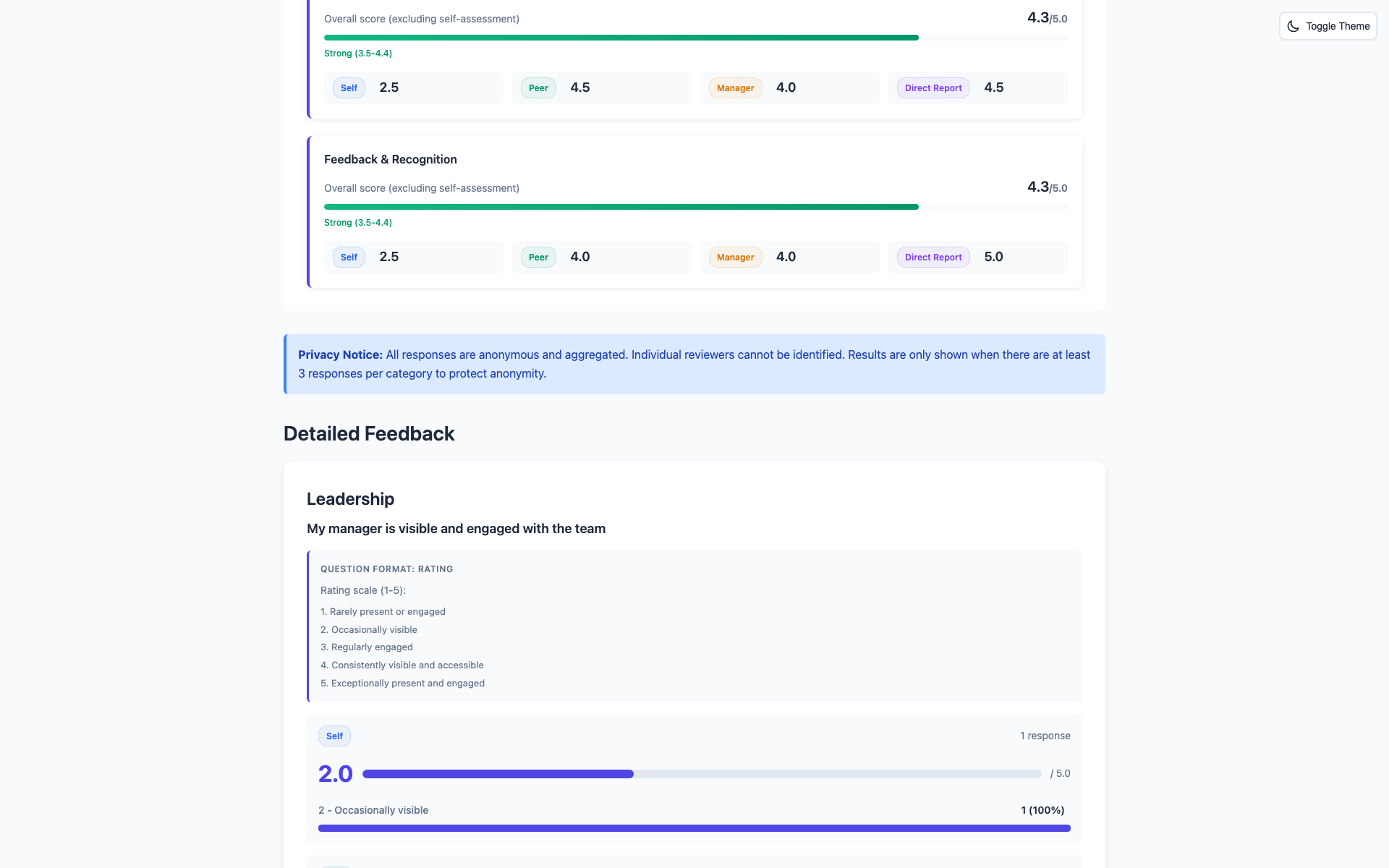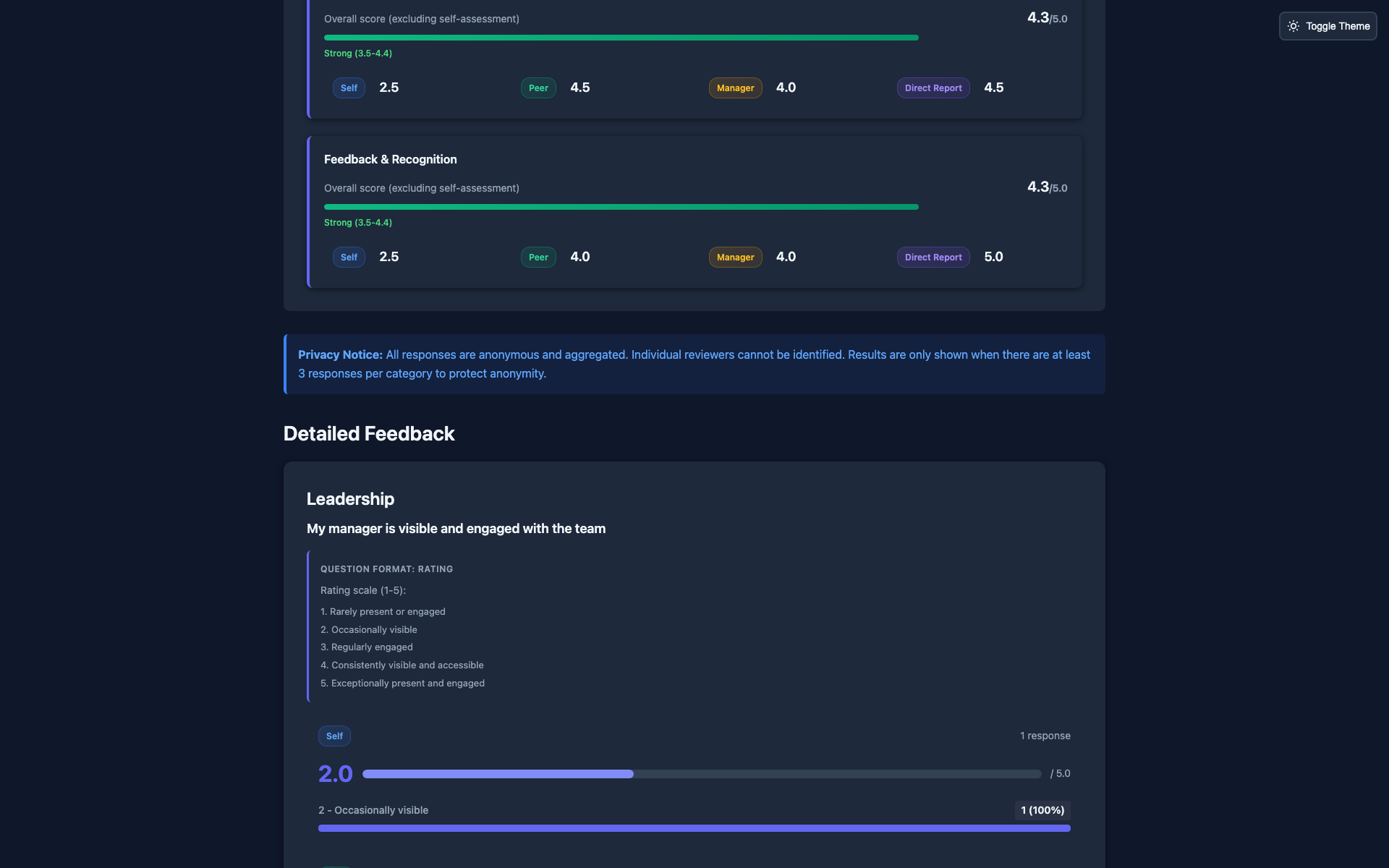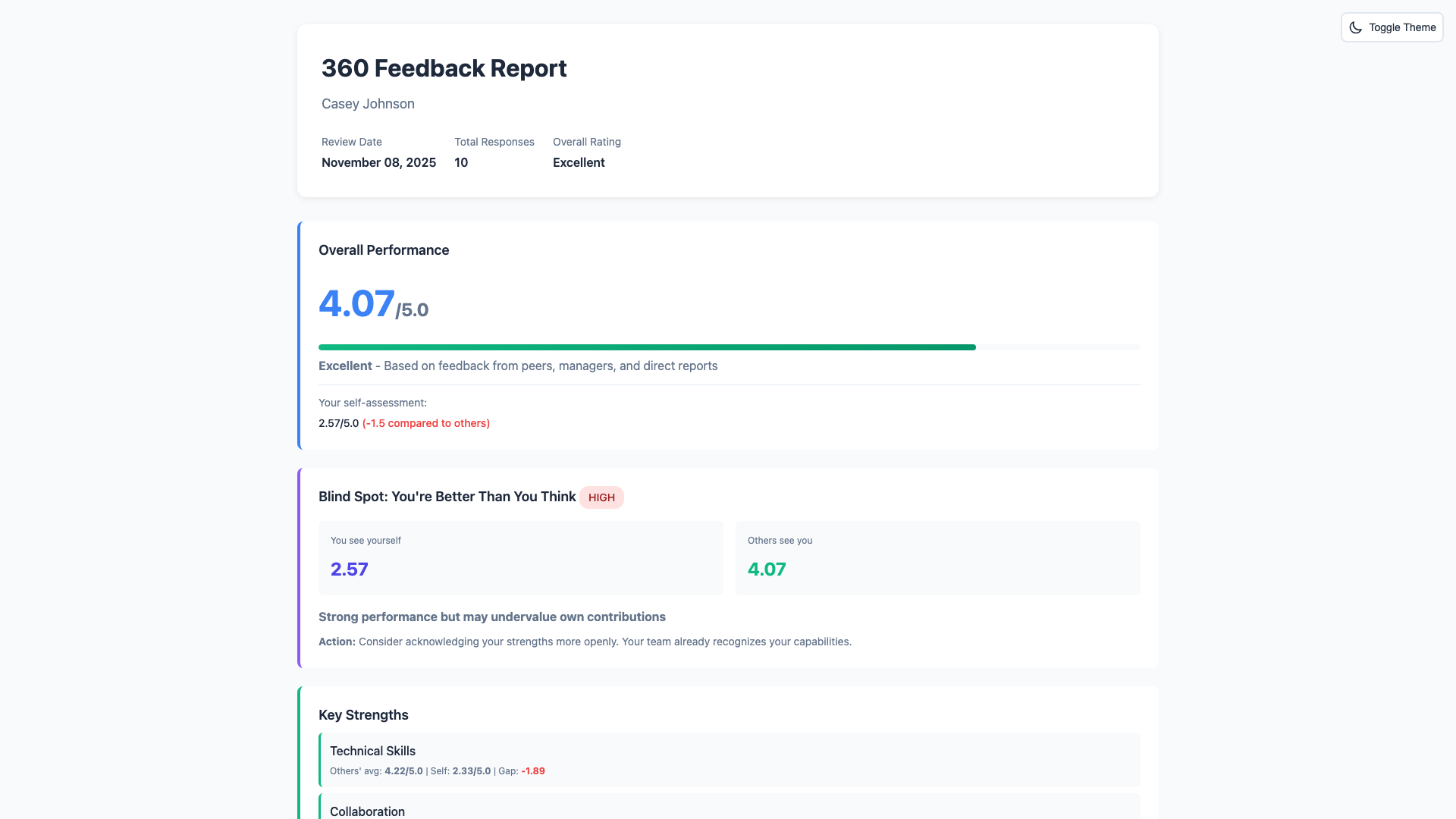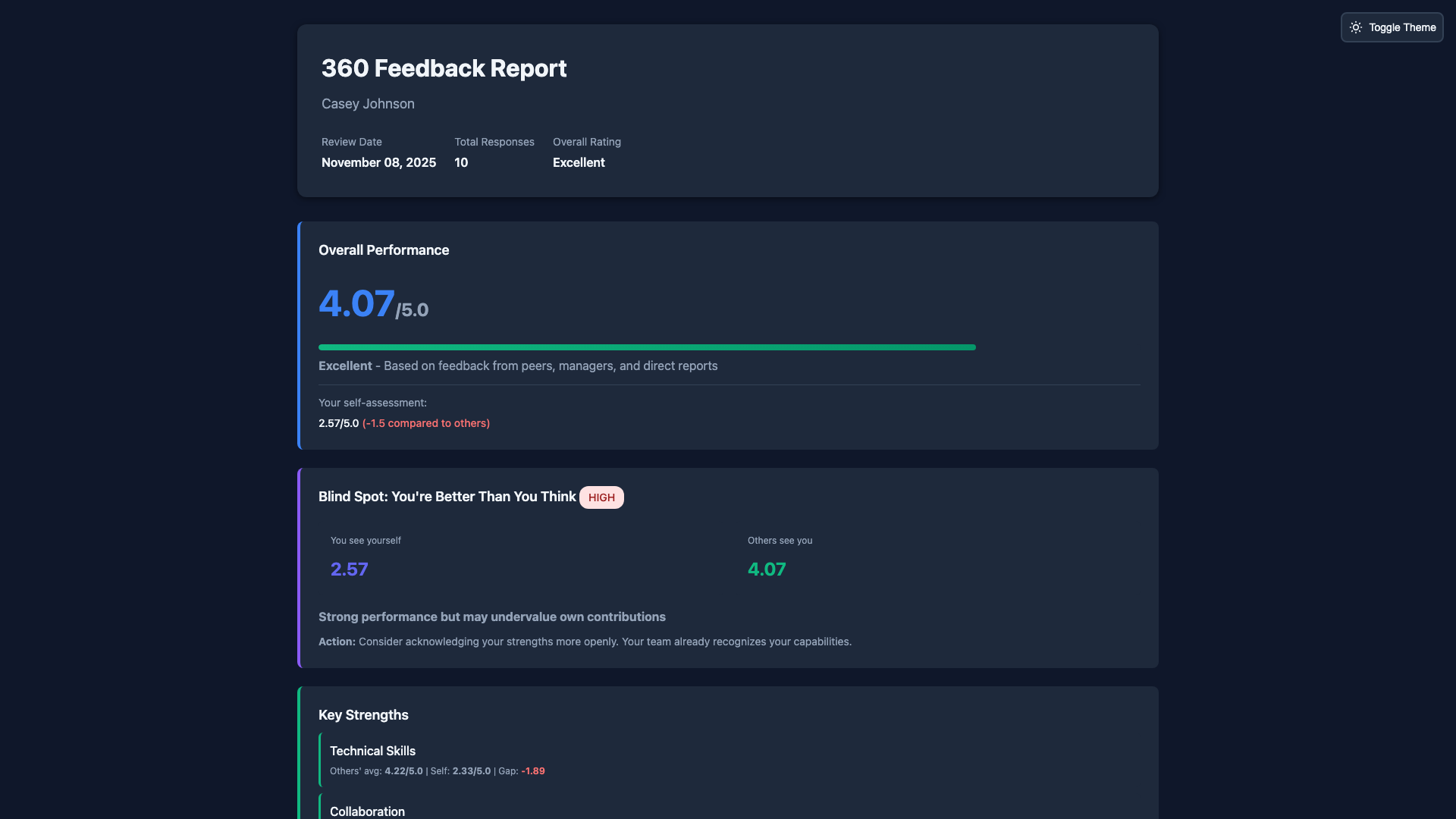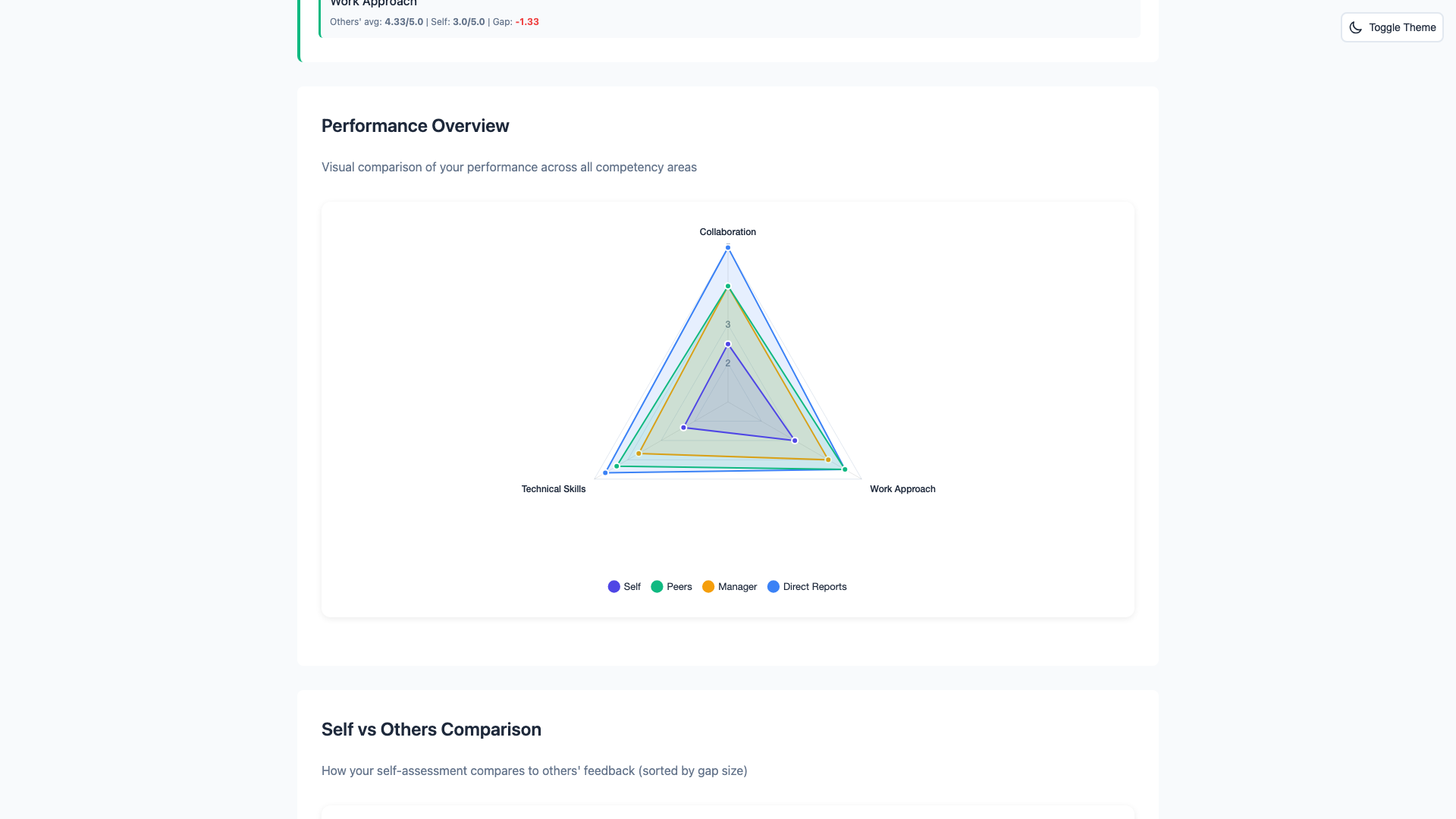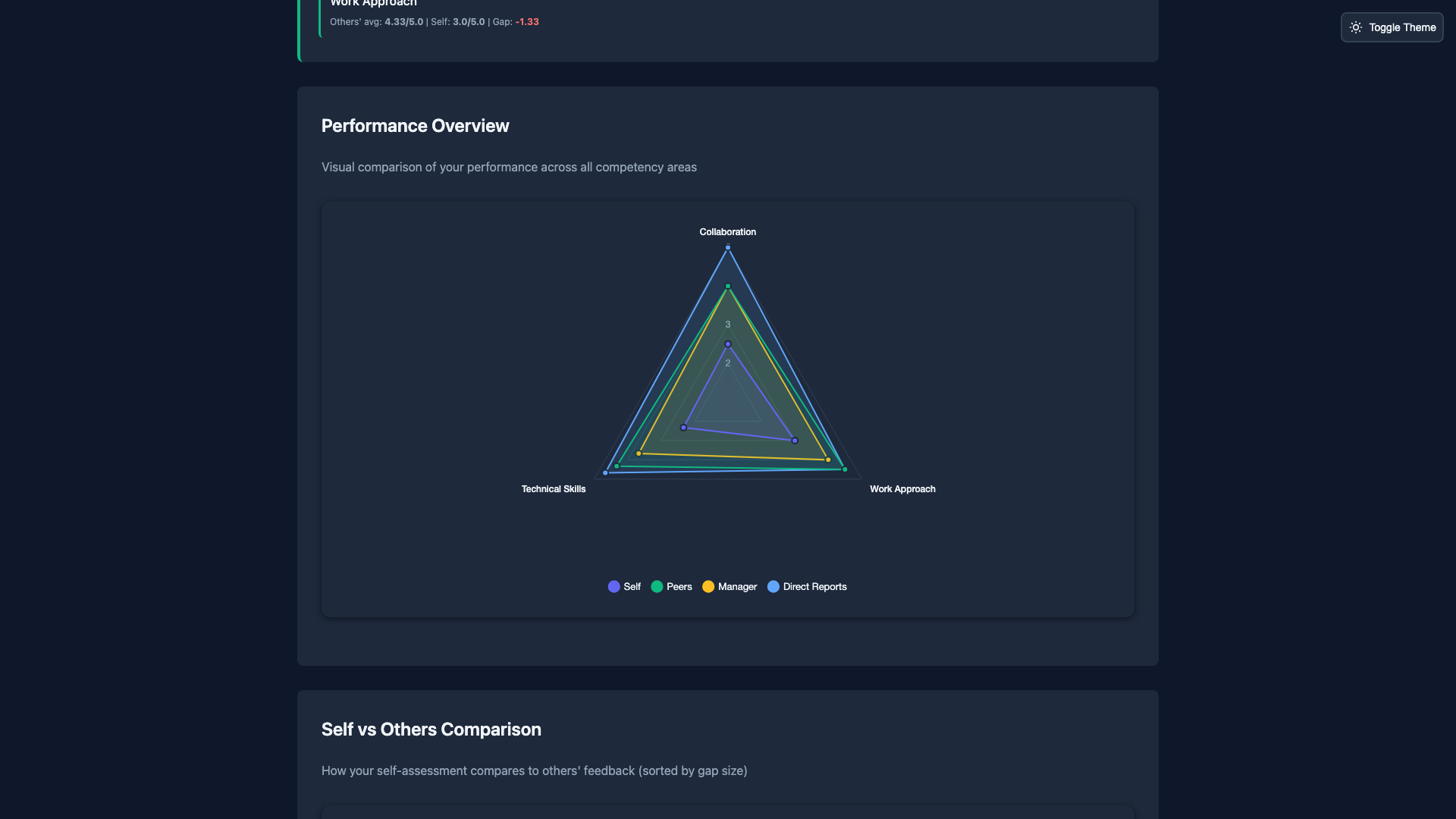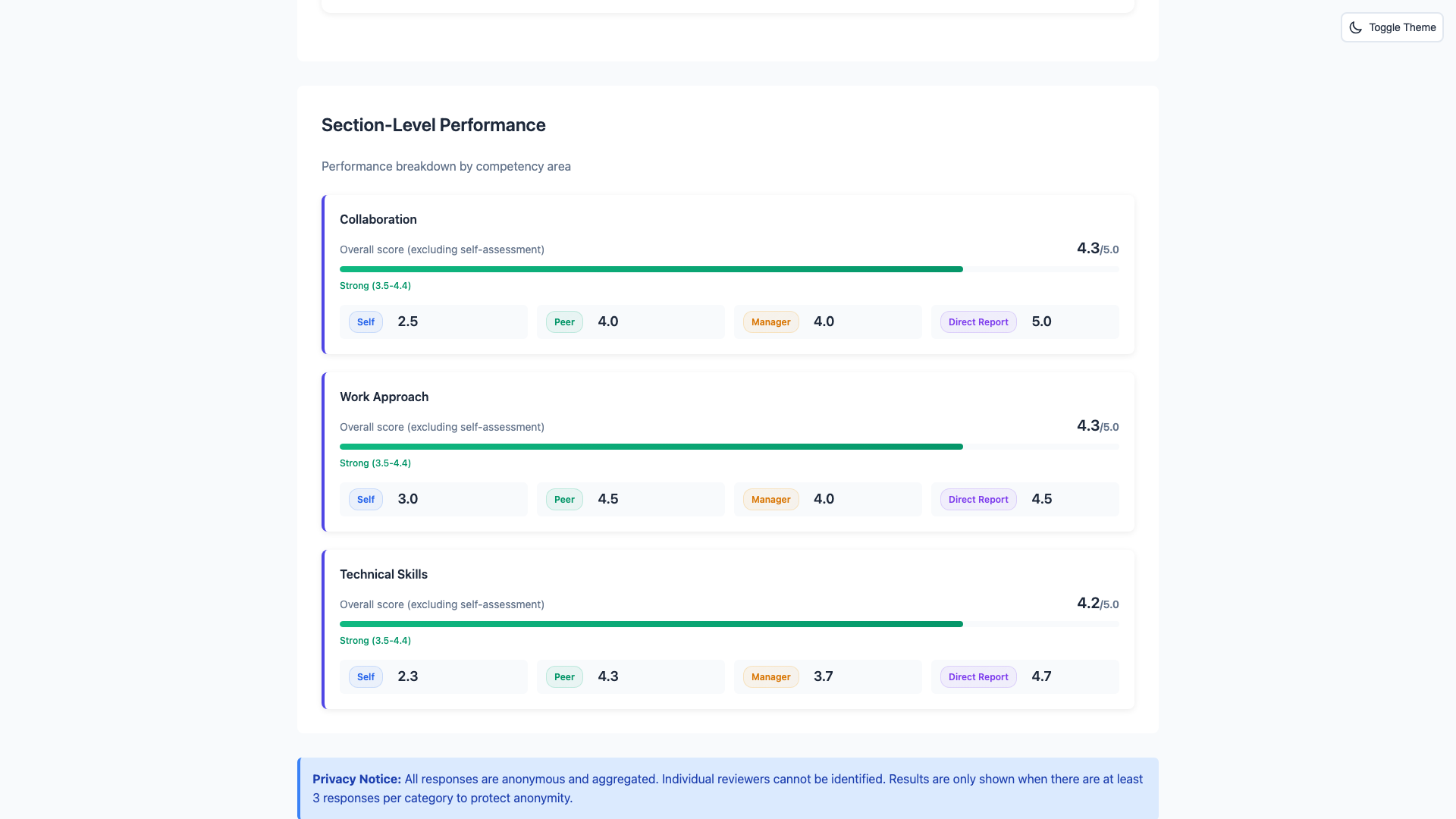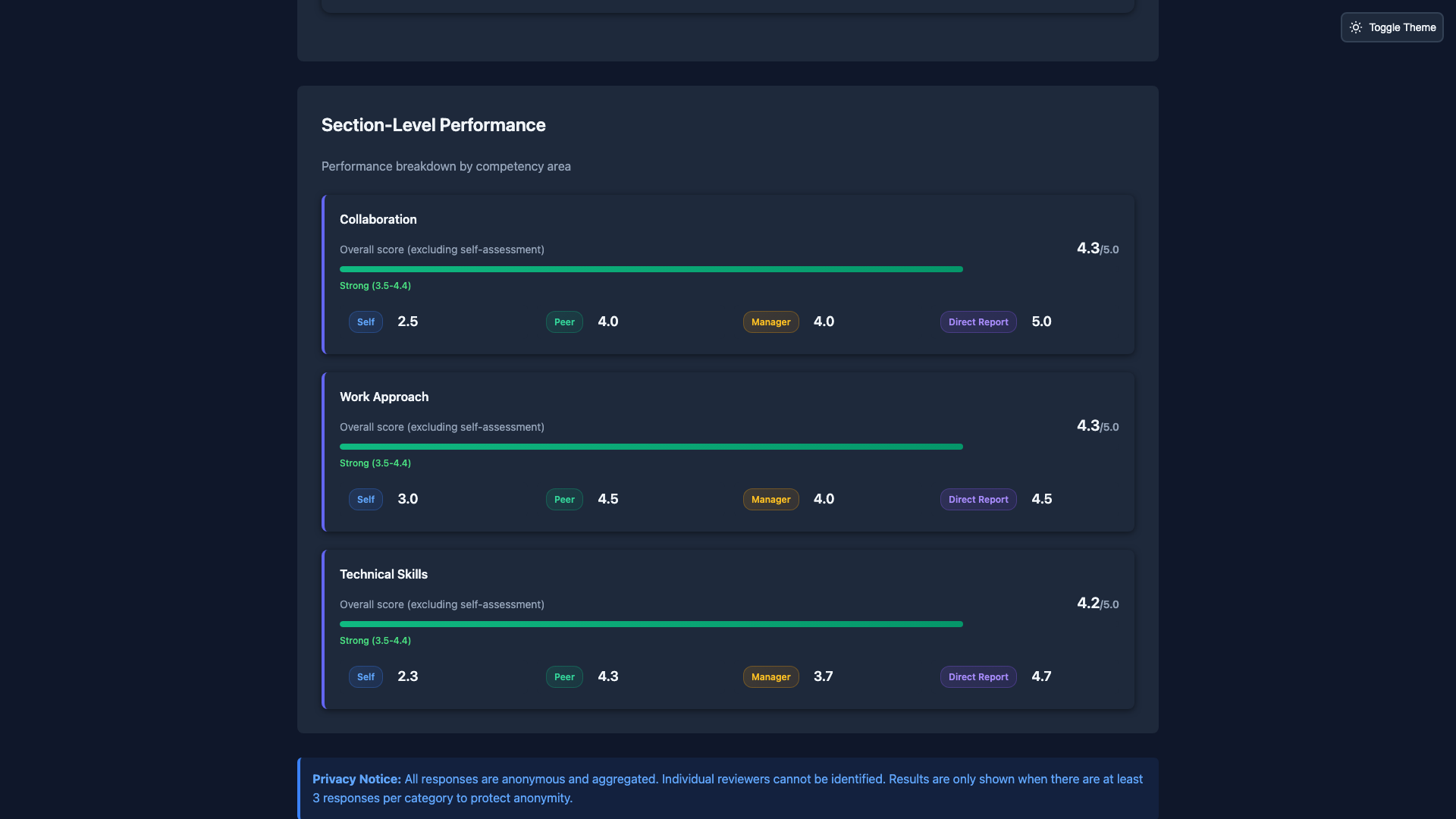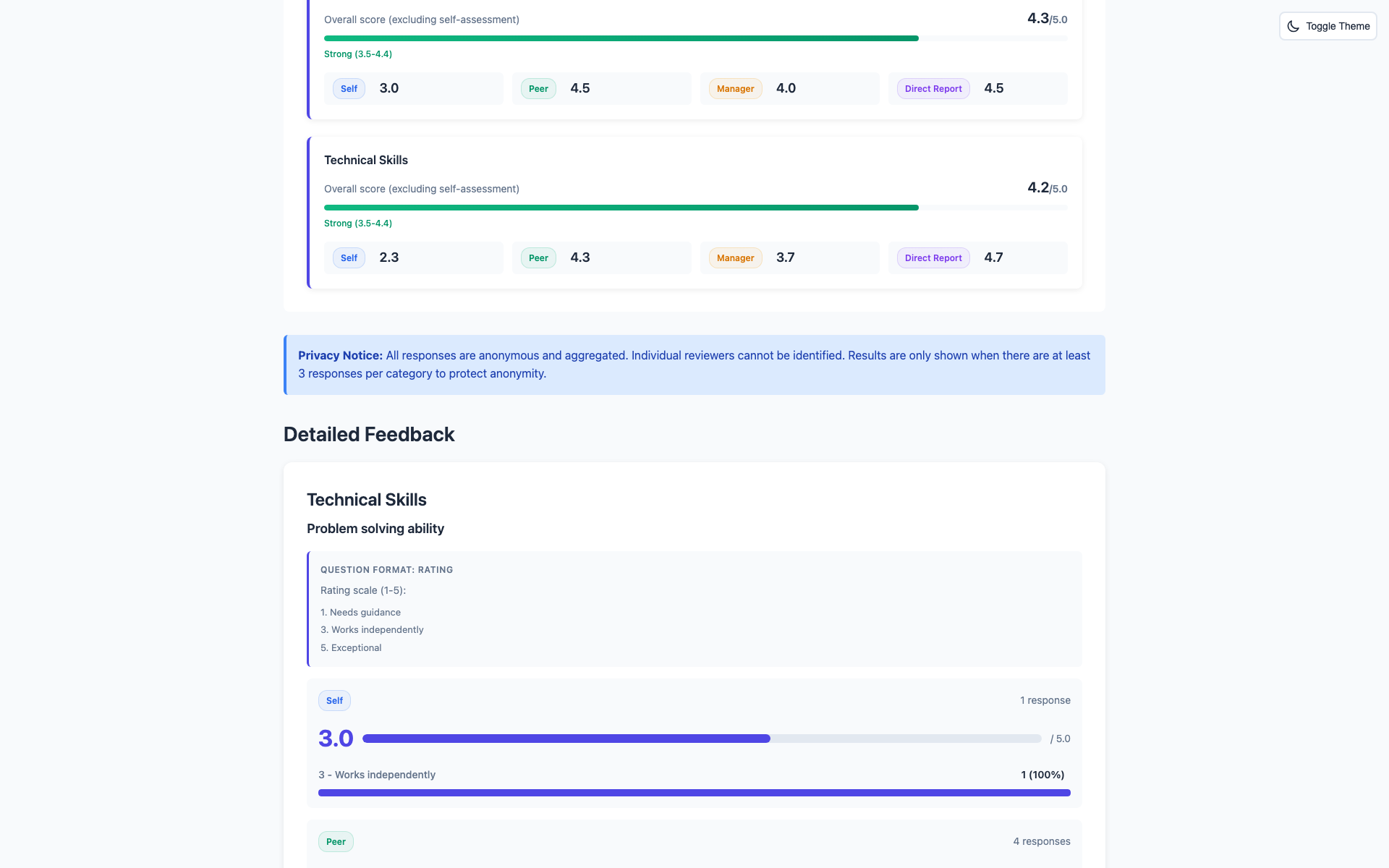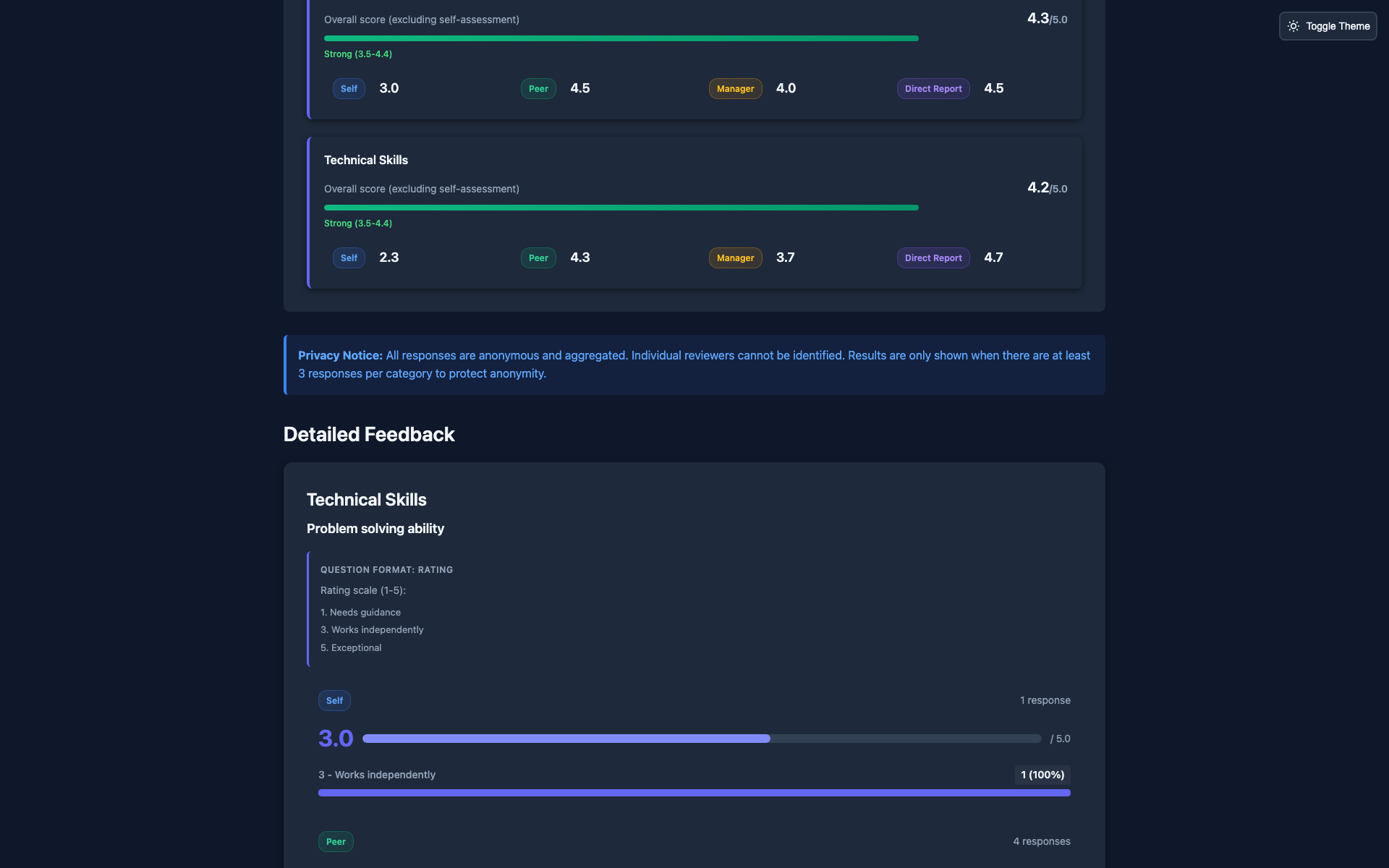What's the difference between the four questionnaires? How do I choose which one to use?
Each one has its own strength and purpose. The Manager 360 is tailored toward evaluating management—how they support teams and develop people. The Engineering questionnaire focuses more on skill and team dynamics, code quality, that sort of thing. The Agency questionnaire is a short test you can send to everyone to get a feel for the level of agency in your company or team. And the Professional Skills questionnaire is more of an all-round business questionnaire. Pick based on what role you're assessing and how deep you want to go.
How long does it take reviewers to complete each questionnaire?
It's hard to say honestly. All questionnaires are different in terms of how long they take to answer. You can never really tell because open answers might require someone to think, which takes more time. Usually the more questions, the longer it takes, but that's not a good benchmark. Good news is we make sure all feedback is saved locally, so someone can accidentally close and come back without losing their valuable typed work.
Do the automated insights work for all questionnaires, or only specific ones?
Yes, most automated insights work for all questionnaires. However, some more Dreyfus related questions will contain more Dreyfus related insights like skill levels. If you create your own questionnaires, that's up to you of course—it depends on the question types and rating scales you choose.
Can I customize the pre-built questionnaires or do I have to use them as-is?
Yes, you can customize the questionnaires, question types, and score answer weights and values. The four pre-built ones are starting points. Use them as-is or change whatever you need.
How does Blik protect reviewer anonymity in the reports?
We take anonymity very seriously. It's impossible for anyone using the system to identify a reviewer—excluding writing style for open questions of course. Reviews use unique tokens with no connection to who submitted them. If fewer than 3 people respond in a category, we hide those responses entirely. There's no technical way to trace feedback back to someone. It's anonymity by design.
Can I use multiple questionnaires for the same person?
Yes, a review cycle can use any questionnaire. Our default behavior for new cycles is to re-use the same questionnaire, since it allows cycle-to-cycle comparison. But you can just create a cycle with a new questionnaire whenever you want. Not locked in.
How do perception gaps work? What insights do they provide?
Perception gaps show the difference between how you see yourself versus how others see you. The reports automatically flag significant mismatches. For example, if you rate yourself a 3.0 on a competency but your peers rate you 4.2, that's a perception gap. Could be imposter syndrome, could be undervaluing your own work. If you rate yourself higher than others rate you, that's a blind spot worth looking at. These show up visually in the overview and in the radar charts.
What are peer benchmarks and how are they calculated?
Peer benchmarks are how you compare to colleagues in the same department or at a similar level. We calculate average scores across peers in comparable roles, then show where you rank. Helps identify top performers and gives context—a 3.5 might be excellent in one team and average in another. Peer benchmarks require at least 3 comparable employees to protect anonymity.
How does the Dreyfus skill level calculation work?
For questionnaires using Dreyfus-based ratings, the system automatically calculates your skill level (Novice → Advanced Beginner → Competent → Proficient → Expert) based on average scores. The calculation maps rating scores to the five Dreyfus stages—a research-backed framework for how people progress from beginners to experts. Learn more about the Dreyfus Model of Skill Acquisition.
Can I export the reports or raw feedback data?
You can export your entire account—we don't have individual feedback or report export. It's all-or-nothing to keep things simple. The export is JSON and includes all review cycles, questionnaires, responses, and reports. Since Blik uses PostgreSQL, you can also query the data directly if you need custom exports.
